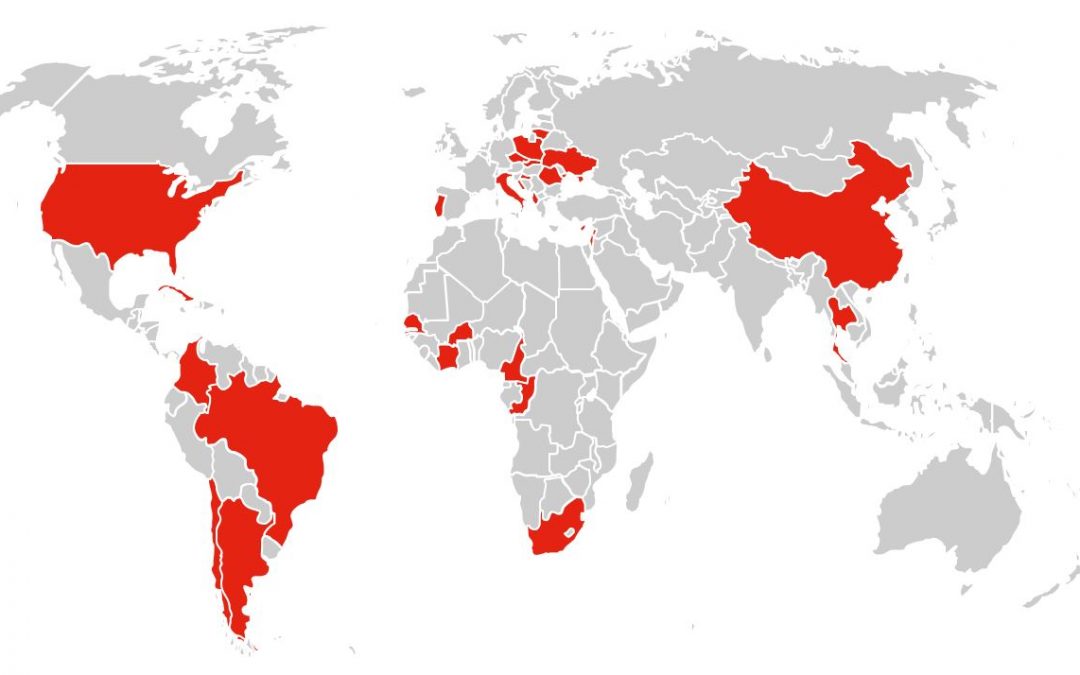This St John’s Day, 39 grants have been awarded supporting the reach and impact of the Order of Malta’s work across five continents, providing education, food and medical care for some of the world’s most vulnerable.
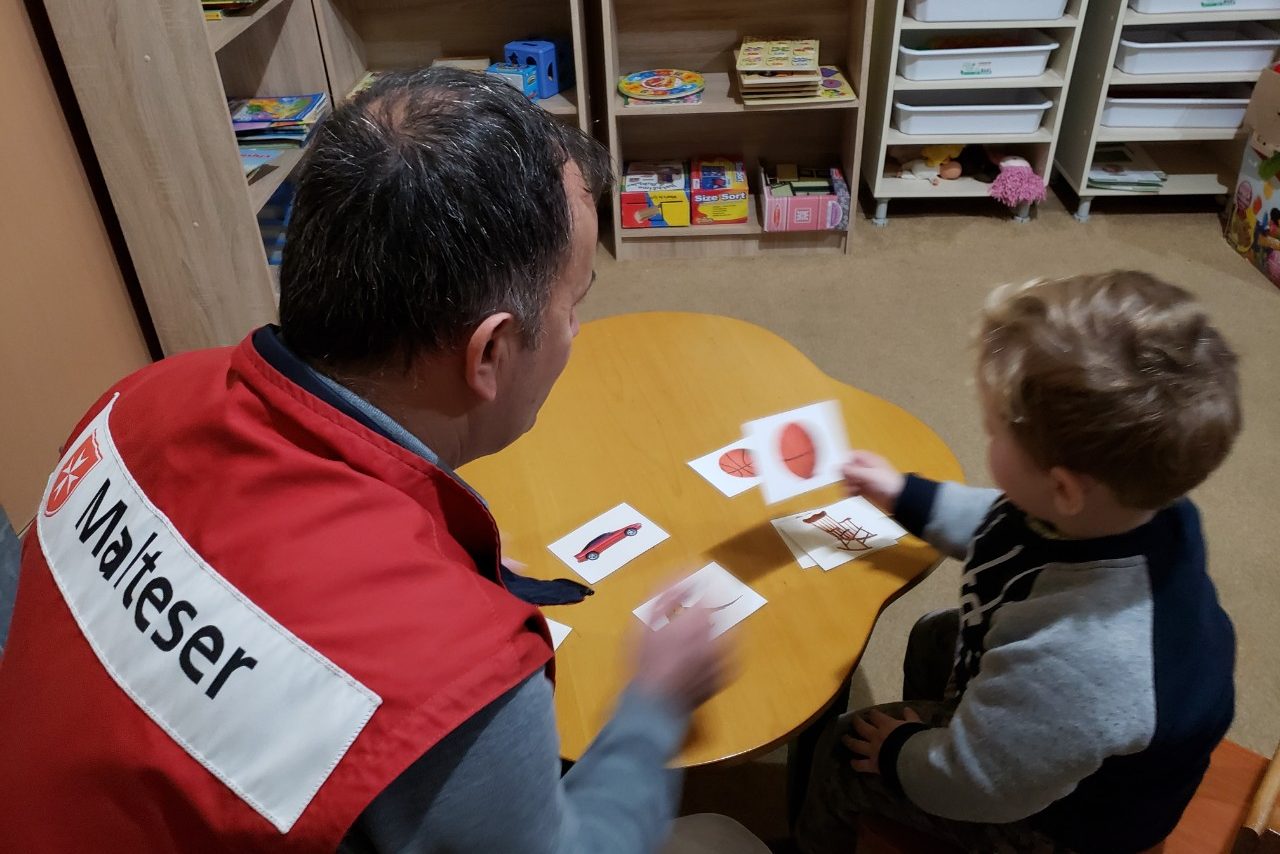
Socio-Medical Centre for Disabled Children, Albanian Relief Service
Since 2012, this centre has been working to improve the quality of life for disabled children in Northern Albania through specialist therapy, adapted education, recreational activities, and life skills development. The Centre also supports parents with workshops on how to best care for their children’s needs and what public services are available to them. There is also a free telephone helpline and psychological support. Additionally, the project also advocates for the rights of disabled children and their families. Currently open five days a week and working with 32 children aged 3-10, the centre would like to increase its capacity to meet high demand by opening a second operating space at the Relief Service’s Kindergarten. The new space will mean double the number of children could benefit from these specialist services, and start to integrate with their peers. This grant will establish this new space, and provide the necessary equipment and educational materials, as well as supporting the staff and overall costs of the programme.
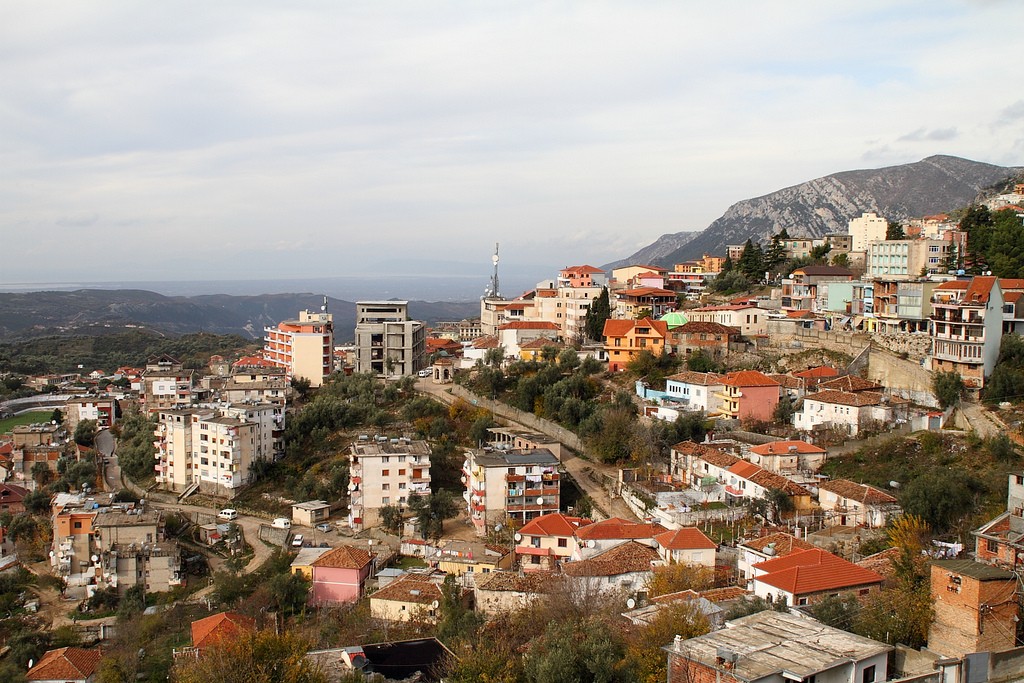
Mother and Child Outreach to Deprived Rural Areas, Albanian Relief Service
The Order has been running a general mobile medical service in the rural and mountainous north of the country since 1995. As part of the programme they have developed a targeted maternal and child healthcare service to improve to improve the health and nutritional status of around 2,000 mothers and children in this deprived region where the infant mortality rate is currently twice as high as in urban areas; 19% of children are stunted due to a lack of proper nutrition, and traditional swaddling practices in Albania means many children suffer from hip dysplasia. This grant will support programmes costs, providing comprehensive ante and post-natal care, health and nutrition education, early childhood development monitoring and referrals to maternity hospitals where required. “Baby boxes” of vital supplies are also distributed to the most vulnerable new parents. A parallel nutrition programme will also be added to promote the importance of healthy eating for early year’s childhood development.
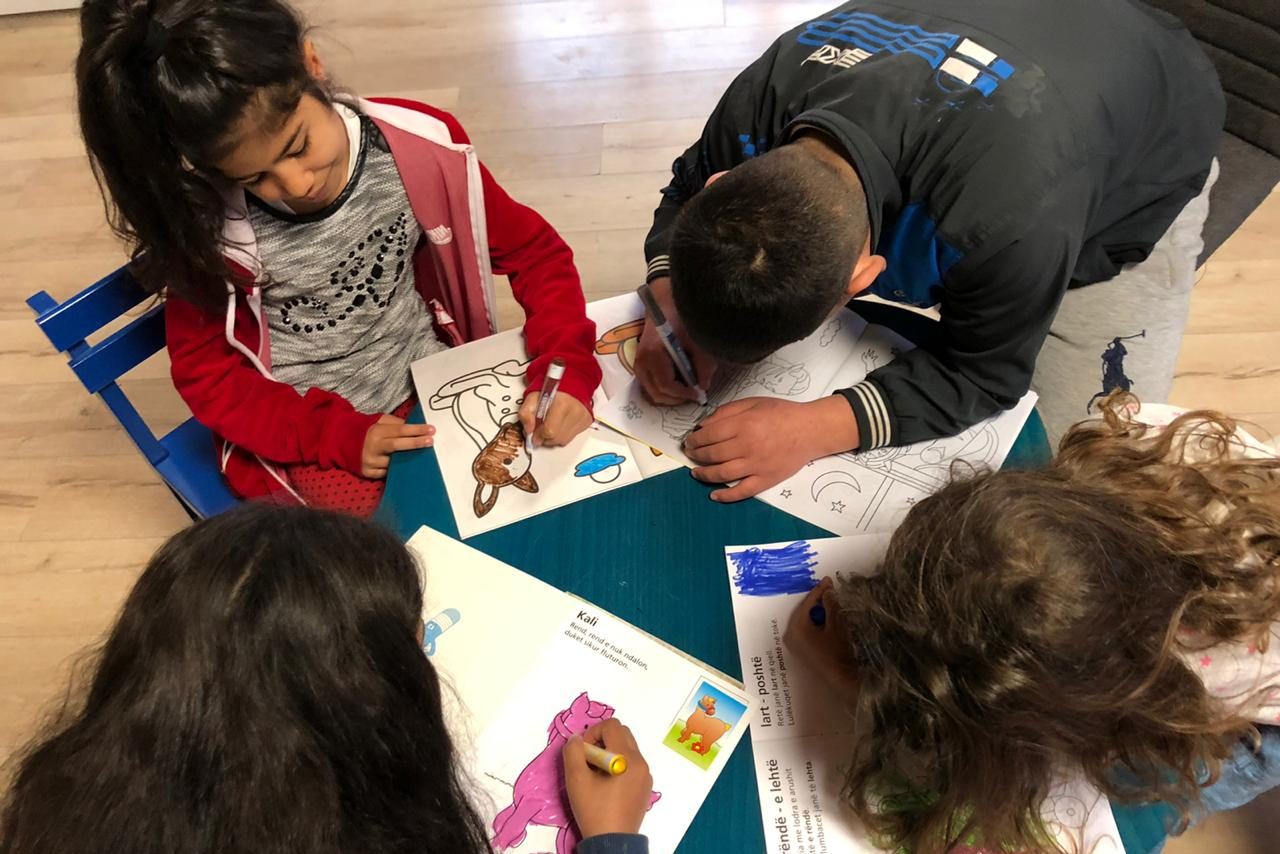
Education Support for Roma Children, Albanian Relief Service & Embassy to the Roma People
There are nearly 2,000 Roma people living in appalling conditions in Northern Albania, isolated from mainstream society, both socially and economically. Schools accepting Roma children often physically set them apart from other students, further exacerbating the high levels of school dropout, which leads to continuing high levels of unemployment and lack of access to social services. Since 2001, the Albanian Relief Service has been working with this marginalised community to improve their quality of life and aid their integration, as well as advocating for their rights. This grant will support the child-focussed activities of the project which take place at the integration centre in Lezha. Funds will also support the kindergarten for 3-6 year olds, after school activities, literacy courses, sport and music, helping to keep Roma children in education and give them the best chance of a better future.
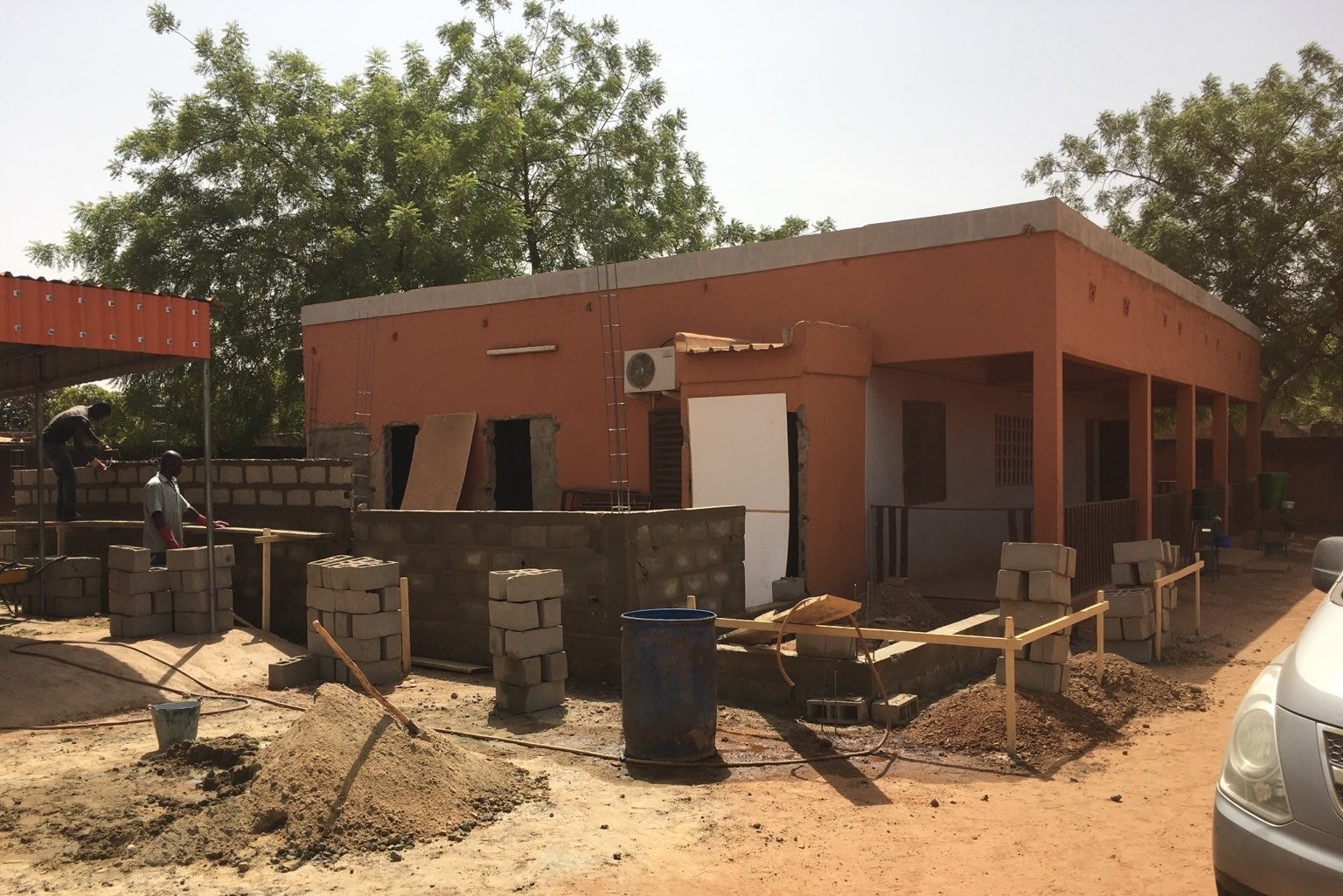
Emergency First Aid for Remote Communities, Order of Malta France
Continued civil unrest in Burkina Faso has left a million people displaced and two million in need of urgent humanitarian aid. The Training and Rescue Action Centre run by the Order operates an emergency response transportation network across four regions, providing nearly three million people with rapid response from emergency services and prompt transfer to the nearest medical centre. The centre also plays a crucial role in expanding and improving the staff in the local healthcare system, training over 40 people a year to become ambulance drivers and first responders. This grant will purchase two new ambulances for the service, which responds to over 9,000 emergencies a year, enabling them to continue to meet the high demand across remote rural areas – the speed of this response is a critical factor in survival rates so the addition of two ambulances will be lifesaving. Funds will also help to construct a building to act as a permanent hub for the training courses and improve the living conditions of the centre’s staff.
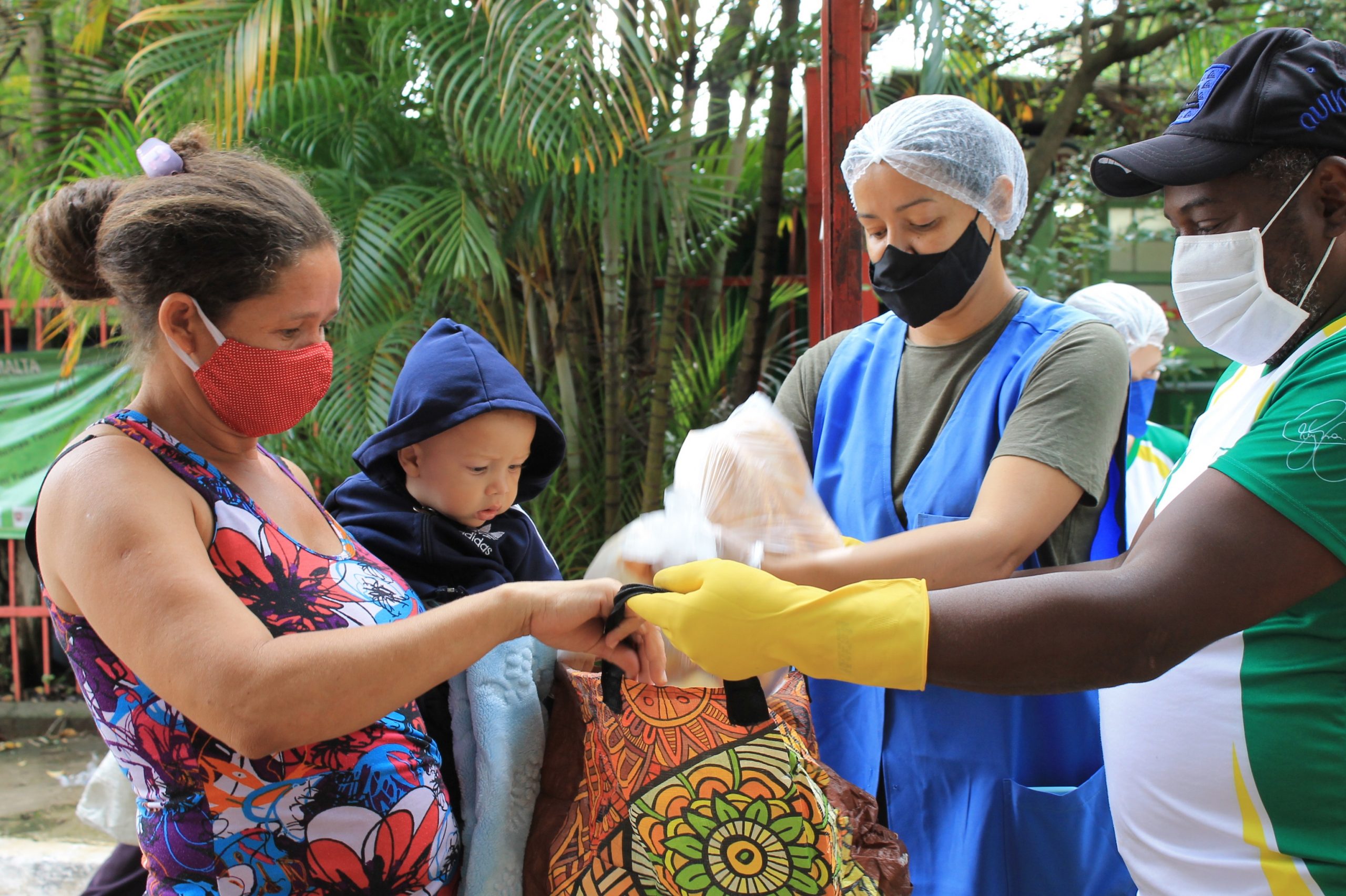
Nutritional Education for Young Mothers, Brazilian Association of Sao Paolo & Southern Brazil
A healthy, nutritious diet is essential to ensuring early childhood physical development, health and well-being. In the slums of Sao Paolo extreme poverty, high unemployment and a lack of sanitation and education has left many families unable to afford or access fresh produce. Poor diet is leading to growing cases of malnutrition and obesity amongst young children. During the pandemic, the Cruz de Malta Assistance Centre distributed food packages to families whose children normally attend their kindergarten. They discovered many mothers did not know how to prepare or cook food, further preventing them from feeding their children contributing to poor nutrition. This grant will cover the start-up and running costs for a new project to teach 80 young mothers with children aged 2-8 years old how to provide nutritious, low-cost meals for their families. The project will create a kitchen garden, which families will then maintain, hold regular lessons on food preparation, nutrition and hygiene, and also enable the women to sell produce and hot meals to improve their financial situation.
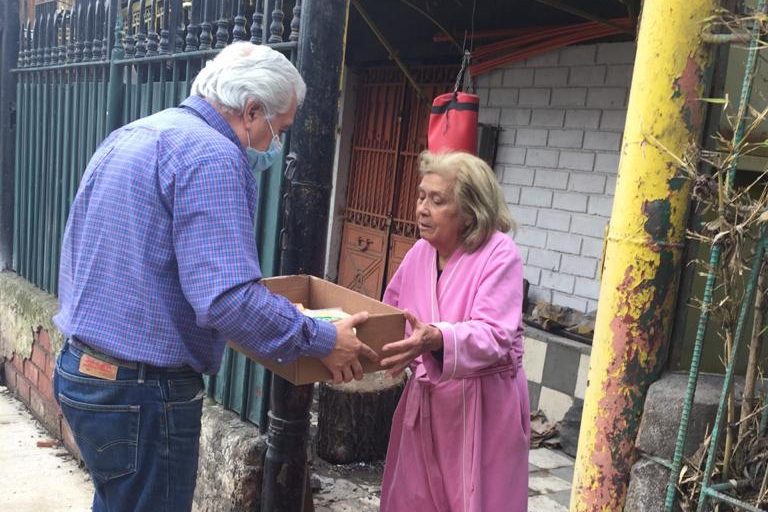
Rehabilitation for Disadvantaged Patients (COVID-19), Chilean Relief Service
Chile continues to battle high levels of coronavirus infections, with the high level of hospital admissions leading to many being discharged while still suffering severe complications. Many have been left unable to walk or speak following their treatment for the virus, but are unable to afford the rehabilitative care that is vital to prevent permanent illness and disability. This grant will support a new project offering at-home therapy to 80 patients from the disadvantaged northern suburbs of Santiago who are suffering from severe post-COVID symptoms. Professional medics will be accompanied by volunteers who will provide additional outreach to these families, including food and hygiene supplies, assistance with accessing state benefits, and psychological support. The programme will enable the Order to assess the general health needs of the local community, who live three hours from the nearest hospital, with the longer-term aim of developing a local rehabilitation centre.
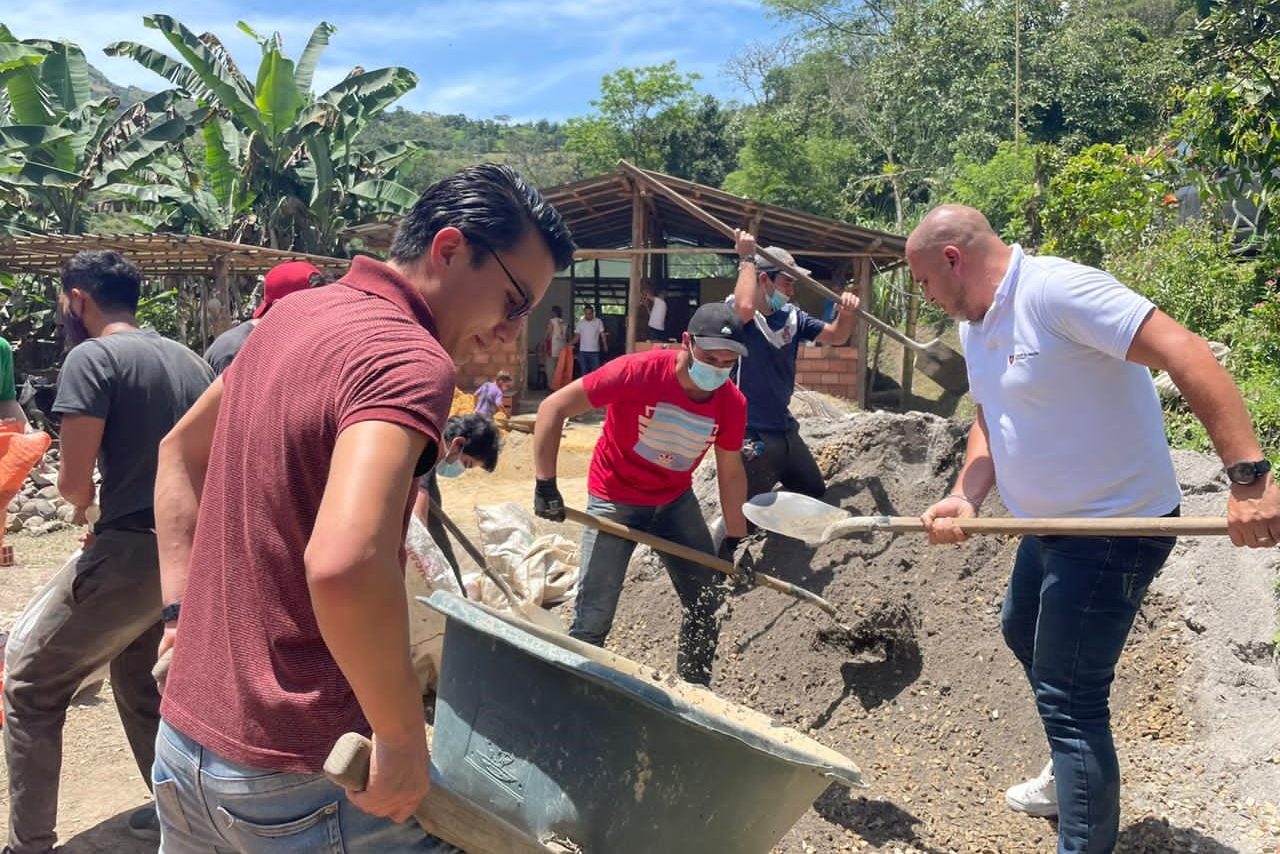
Homes for Homeless Families, Colombian Association
Over a third of the population of Colombia currently have no permanent home. The vast majority of these 18 million people live in rural areas, where poverty levels across the country are over 40%. The state is simply not able to meet this overwhelming need, leaving remote communities with only their local parish for support. This grant will support a new project to build houses for highly vulnerable families in the rural outskirts of Bogota – families will contribute to the design and construction of their homes. Volunteers will work alongside professional builders to construct permanent shelter for 12 families in the next year. Six houses will be built, providing a place of stability and security for these extremely vulnerable people.
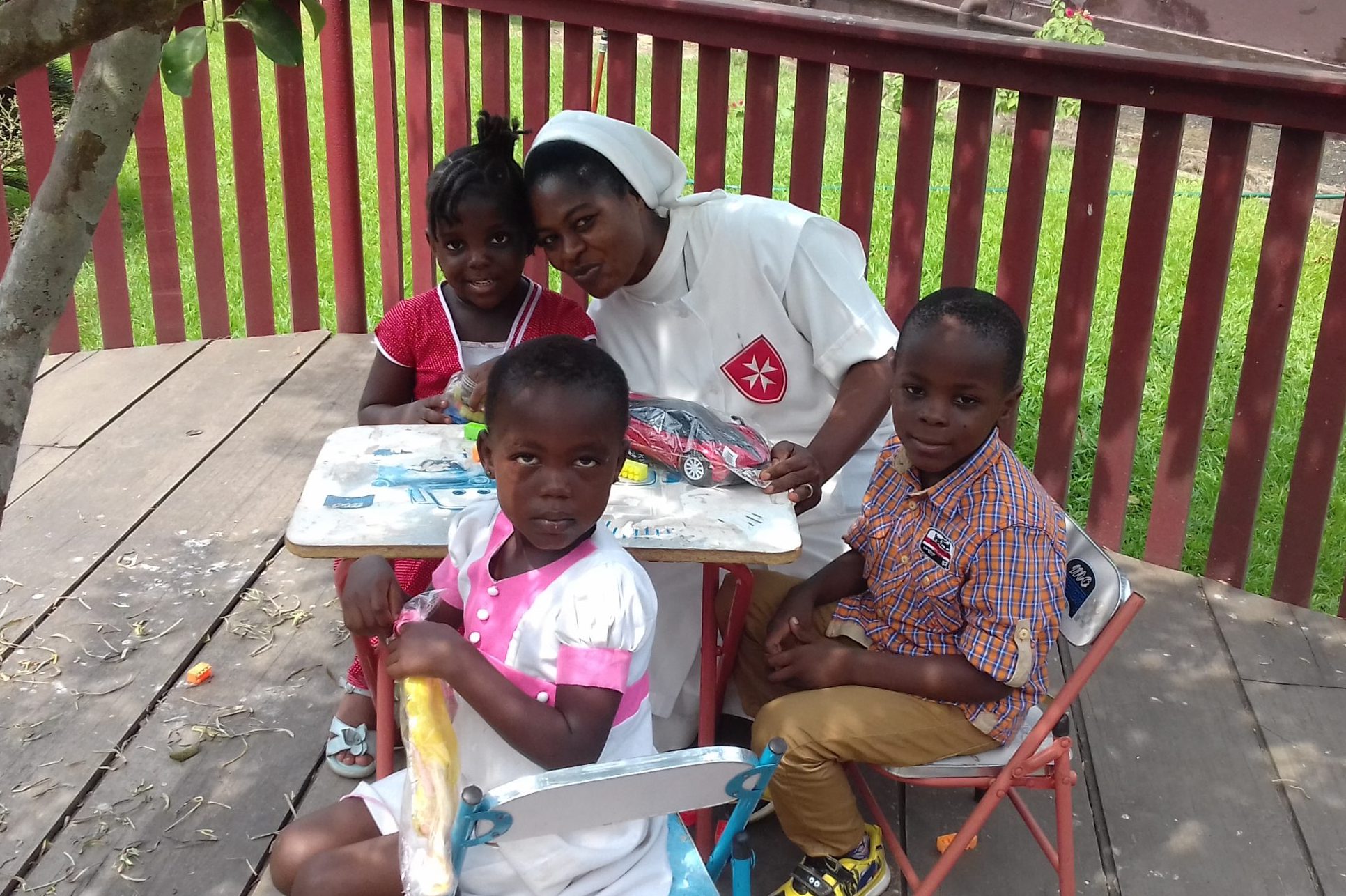
Medical Facilities for Mothers and Babies from Deprived Communities, Order of Malta France
The Order of Malta’s St Jean de Malte Hospital in rural Njombe provides the only source of high-quality maternal and child healthcare for over 100,000 people. The maternity unit saw over 3,000 hospitalisations and nearly 8,000 consultations in 2020, undertaking 300 C-sections and delivering 652 babies. The unit is now undergoing major renovations, including the creation and equipping of a new gynaecology ward, to increase its capacity and continue to provide quality care to mothers and newborns with new equipment. This grant will support the purchase of the equipment, including an oxygen concentrator and hydraulic delivery table, for the newly extended facilities caring for over 10,000 mothers and newborns every year.
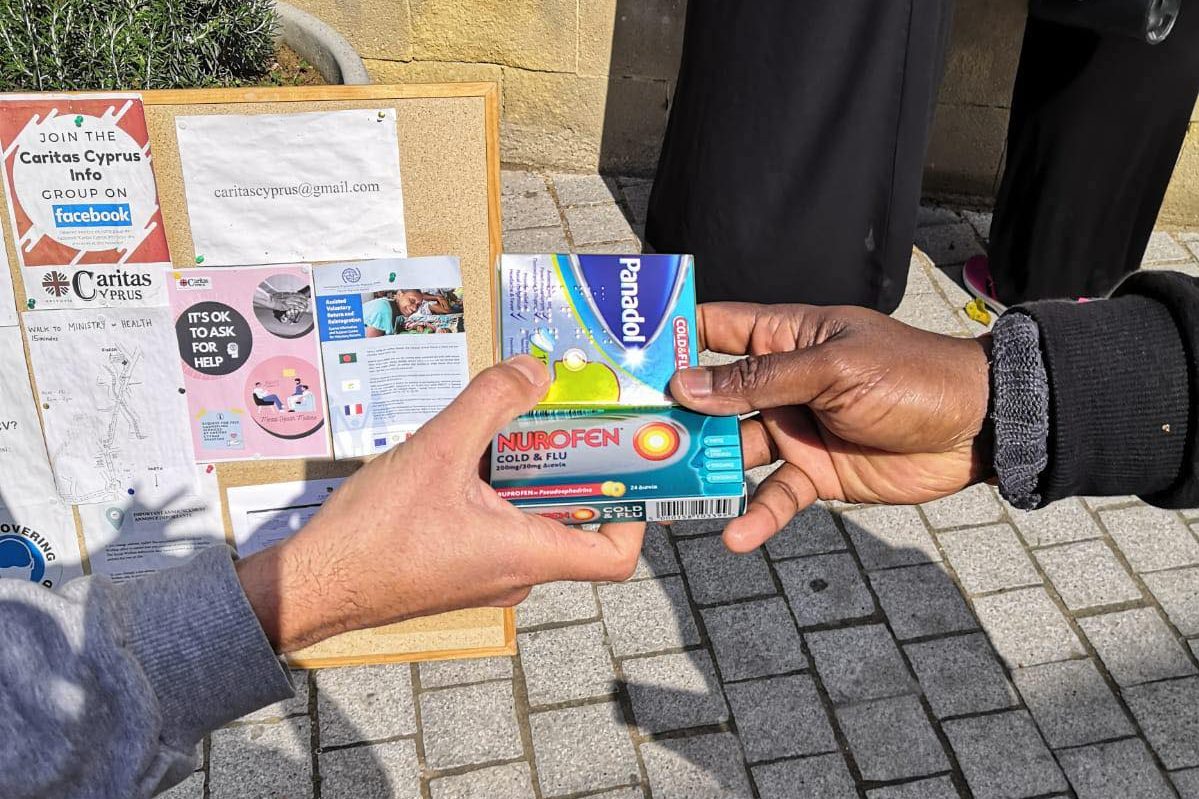
Medical Support for Refugees, Embassy to Cyprus
Cyprus now hosts the most refugees per capita in the EU, with numbers continuing to rise. The pandemic has created a bottleneck as refugees continue to arrive, but the processing of asylum applications – which takes 18 months under normal conditions – has been halted. The main camp at Koffino has facilities for 600, but with nearly 10,000 people seeking shelter, many are living on the streets, surviving on below poverty line subsidies that are barely enough to buy food while they wait at least 18 months for their asylum applications to be processed. This grant will support the expansion of the Order’s work among this neglected population, not only by continuing to expand the medicine distribution, but also through establishing an overnight shelter, and hiring a programme manager to oversee the programme activities.
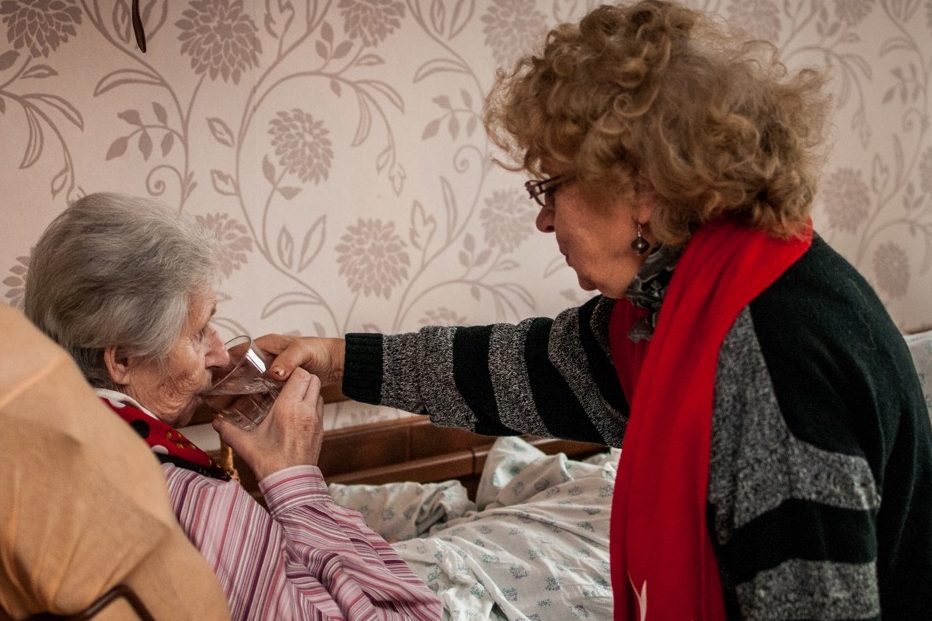
Day Care Centres for Elderly People, Lithuanian Relief Service
Three community day care centres have been established for the elderly in Lithuania with support from the Fund. Vulnerable elderly guests that attend are already showing significant improvements in their emotional and physical health, and the centres provided a virtual lifeline of contact during the increased isolation of the COVID-19 lockdowns. This grant will enable the Relief Service to add two more centres to increase their fight against the loneliness and isolation of the elderly population. The centres provide a space for them to meet, socialise, eat and receive basic health checks. There are educational and recreational activities, art and music therapy, holiday celebrations, as well as space for the visitors to meet, chat, rest and eat. Together the five centres will care for 95 vulnerable elderly people and provide outreach to a further 50, who are unable to travel due to disability or ill health, in their own homes. This grant will cover the staff costs of one employee per centre.
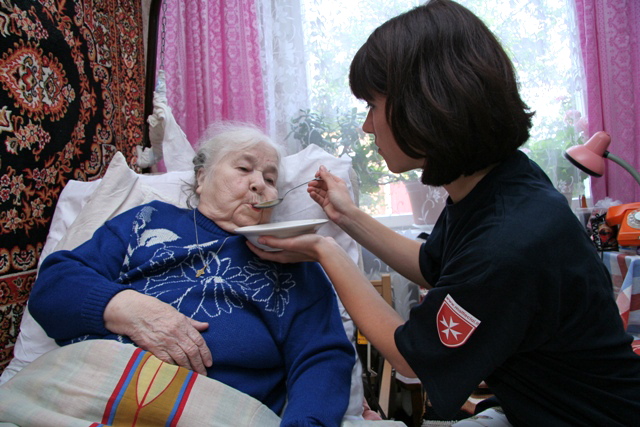
Care Home for Elderly People, Lithuanian Relief Service
The population of Lithuania is aging, putting increasing pressure on the country’s social services. The number of elderly people requiring more specialised care often means they end up in institutional hospital care rather than residential nursing homes. With support from a grant from the Fund at Christmas 2019, the Lithuanian Relief Service began creating the first residential care home in Lithuania, providing a home for 28 elderly people in Telsiai. Works are ongoing and are scheduled for completion in summer 2021; the home will be officially opened in September. This funding will cover additional refurbishment costs. Once open, the home will be self-sustaining and run-in close cooperation with local government to identify residents and provide financial partnership, and will be a safe and secure space for the lonely and vulnerable elderly in Lithuania.
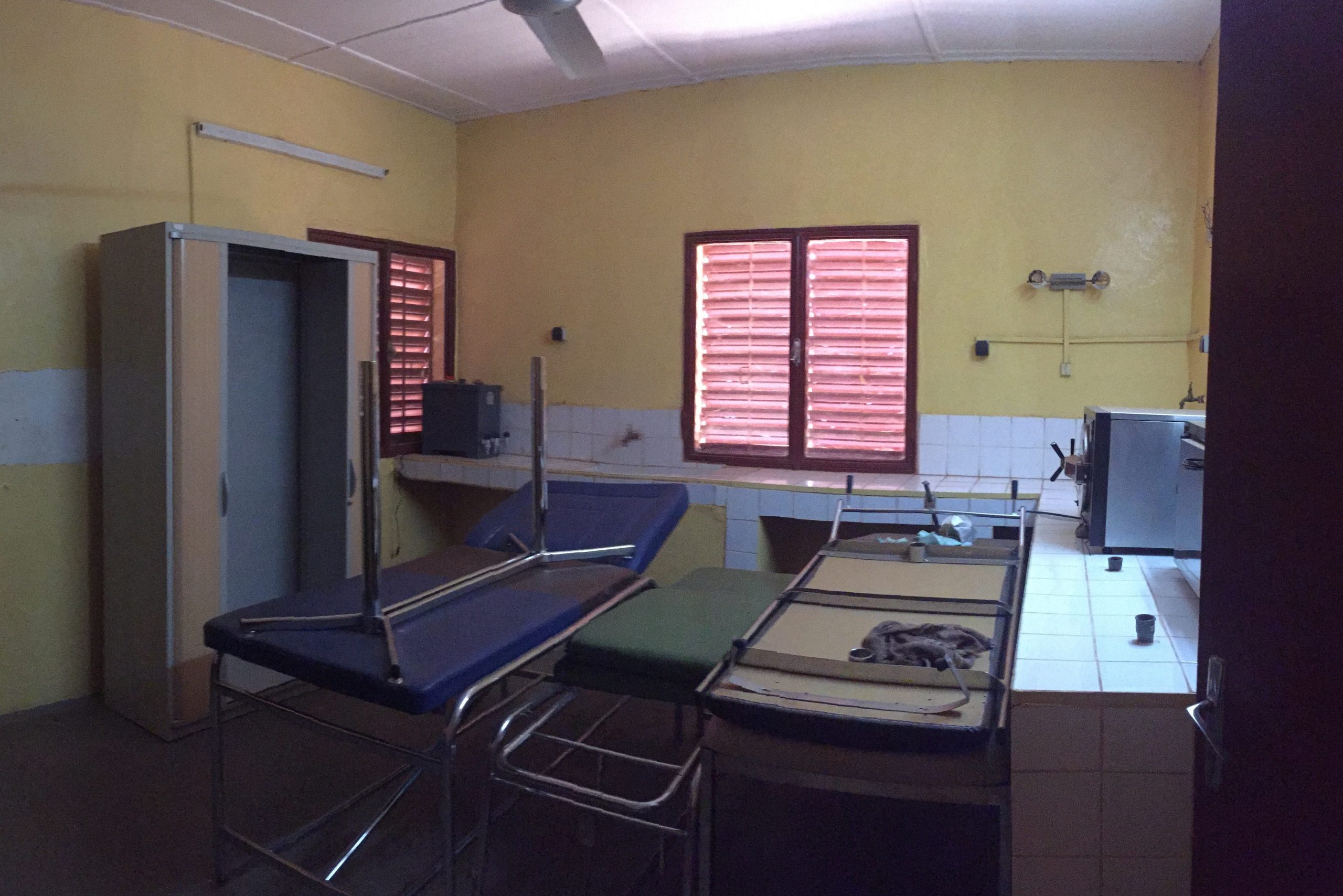
Dental and Eye Care for Deprived Communities, Order of Malta France
There are only 700 dentists in Ivory Coast (equivalent to one for every 35,000 people) resulting in a severe lack of emergency dental and ophthalmological care. Minor eye conditions are often left untreated creating avoidable blindness, and over 60% of the population suffers from oral health issues. In 2020, the Order of Malta’s St Jean Baptiste hospital in Bodo carried out 1,008 ophthalmology and 1,971 dental consultations, providing an essential service in these fields. This grant will enable the purchase of specialist equipment and the refurbishment of the practice’s areas to improve and extend the dental and ophthalmology services offered by the hospital, including the expansion of their ophthalmic surgery provision. Staff will also receive training in the use of the equipment and in eye and dental care to increase local knowledge of these specialties.
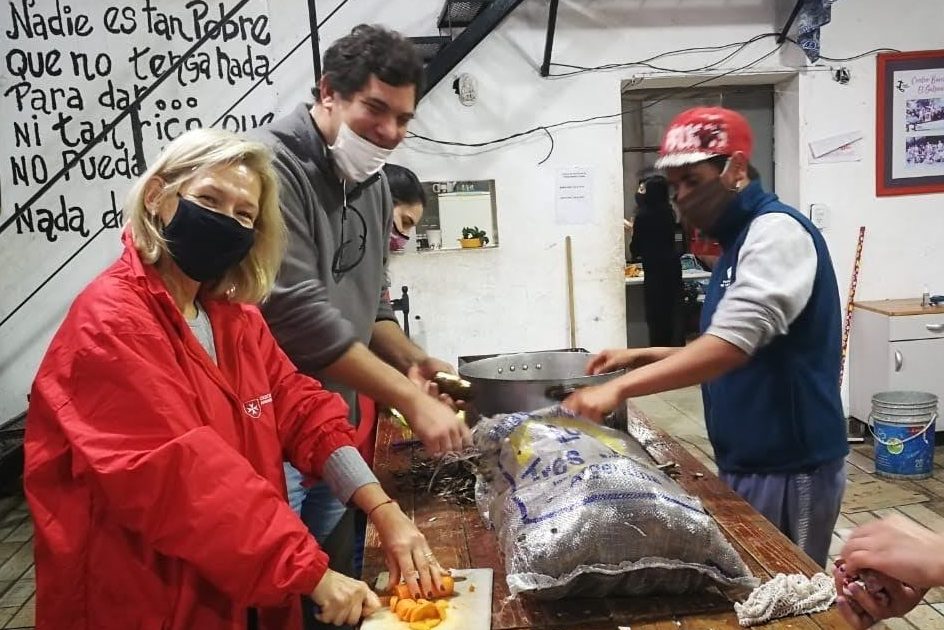
Food for Families in Poverty, Argentinian Association
Argentina is facing the worst economic crisis in its history. Eight million children live below the poverty line, and the recent restrictions in response to the COVID-19 pandemic have left many families struggling to survive. Those living in the poorest areas of Buenos Aires receive no state support and live in deplorable conditions. With support from the Fund, the Order in Argentina reaches 7,700 disadvantaged people in these areas every week with vital food supplies including meat, milk, fresh vegetables and long-lasting canned goods. Many of those helped are refugees forced to flee Venezuela for their own safety.
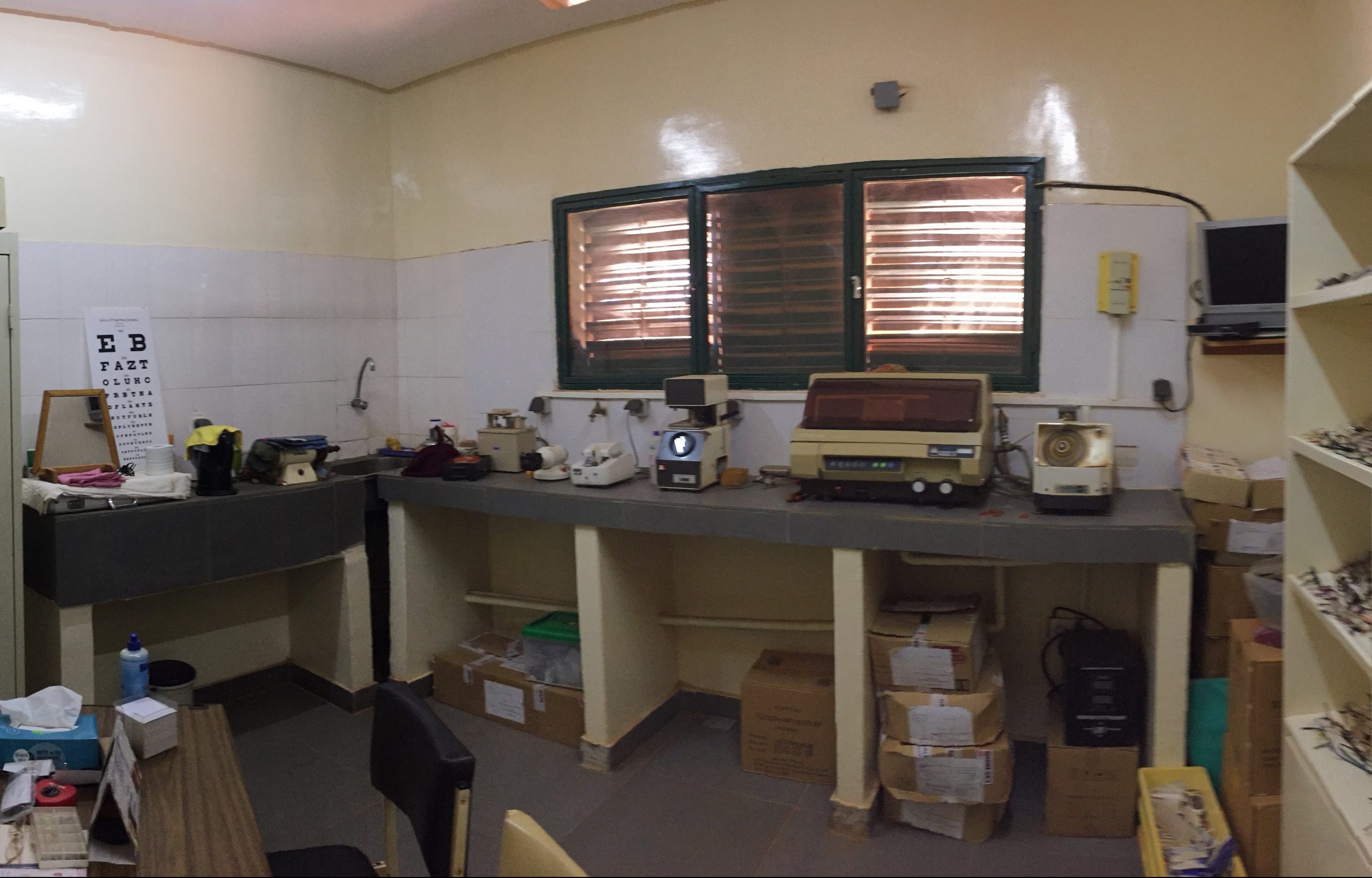
Dental Care for Disadvantaged Communities, Order of Malta France
In January 2021, the National Order of Dentists in Burkina Faso published a review of the country’s oral health. They found around 50% of the population have tooth decay and many dentists lack the resources and equipment to provide proper care despite being fully trained. This leaves many people suffering unnecessary pain and infection, which can be life-threatening. This grant will support the purchase of specialist dental equipment, including an autoclave and digital dental X-ray sensor, to improve the dental services offered at the Order’s health centre, Ouagadougou, which currently carries out over 500 dental consultations a year.

Care for the Forgotten Elderly People, Cuban Association
The Order in Cuba is dedicated to caring for the rapidly growing underprivileged elderly community, who receive minimal state pensions. Many elderly Cubans are struggling daily with poverty, supplementing their income by selling homemade sweets and collecting recyclable materials. This grant is focused on supporting the conversion of centres from ‘comedores’ (soup kitchens) to ‘casas’ (live in residencies). This will transform the lives of many elderly people in need, allowing them to receive more holistic care.
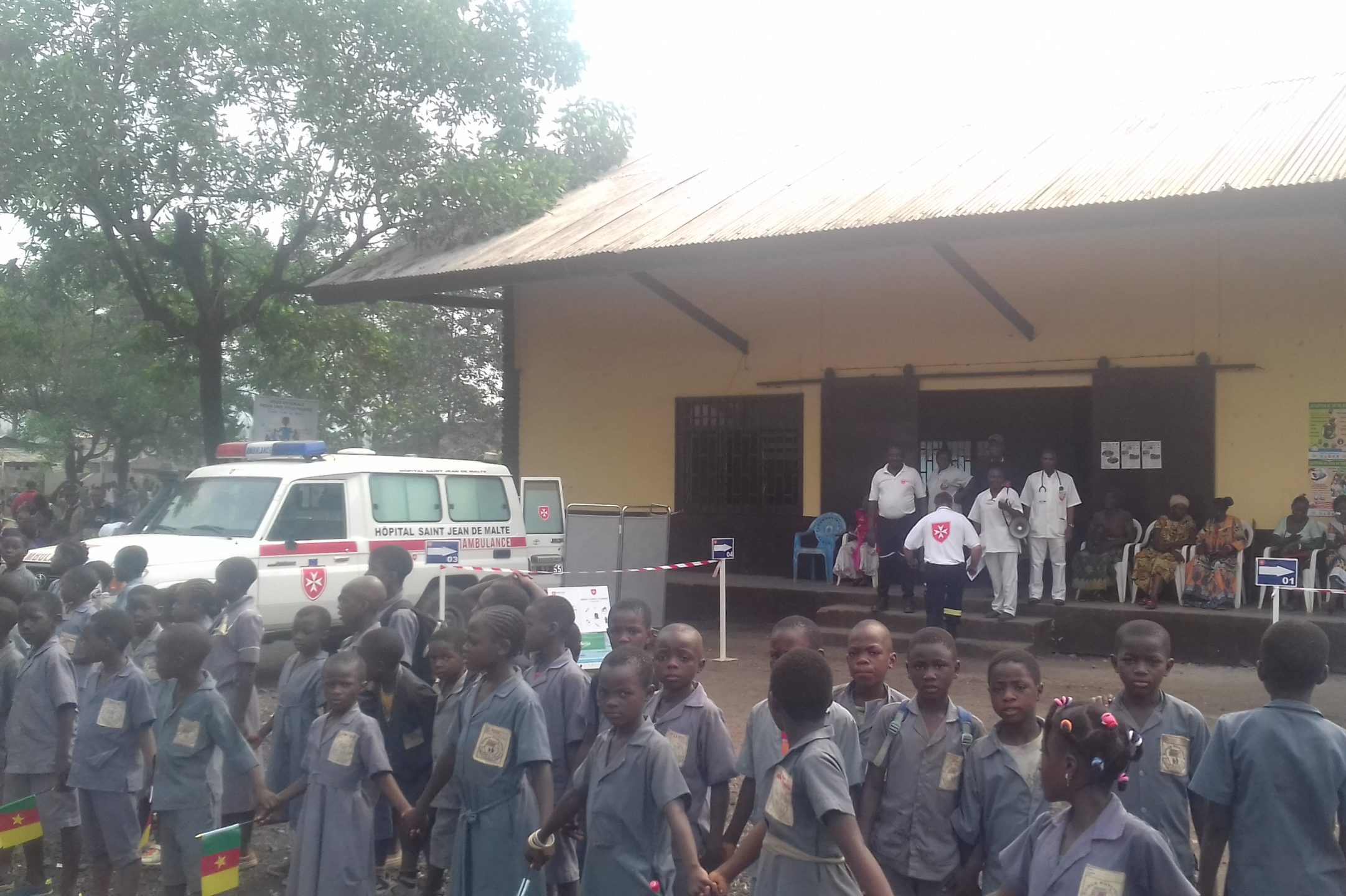
Emergency Transportation for Disadvantaged Communities, Order of Malta France
The Order of Malta’s hospitals in Bodo, Ivory Coast, Dakar, Senegal and Njombe, Cameroon, provide the only source of affordable high-quality healthcare to many hundreds of thousands of people. The 528 staff who work across the three hospitals, which also provide outreach services into remote rural areas, work tirelessly to keep the services running despite innumerable obstacles such as access to supplies, lack of transport, and security concerns. This grant will purchase a transit vehicle for each of three hospitals to reduce transport times for staff in caring for urgent patient cases as well as facilitating movement of medicines and supplies.
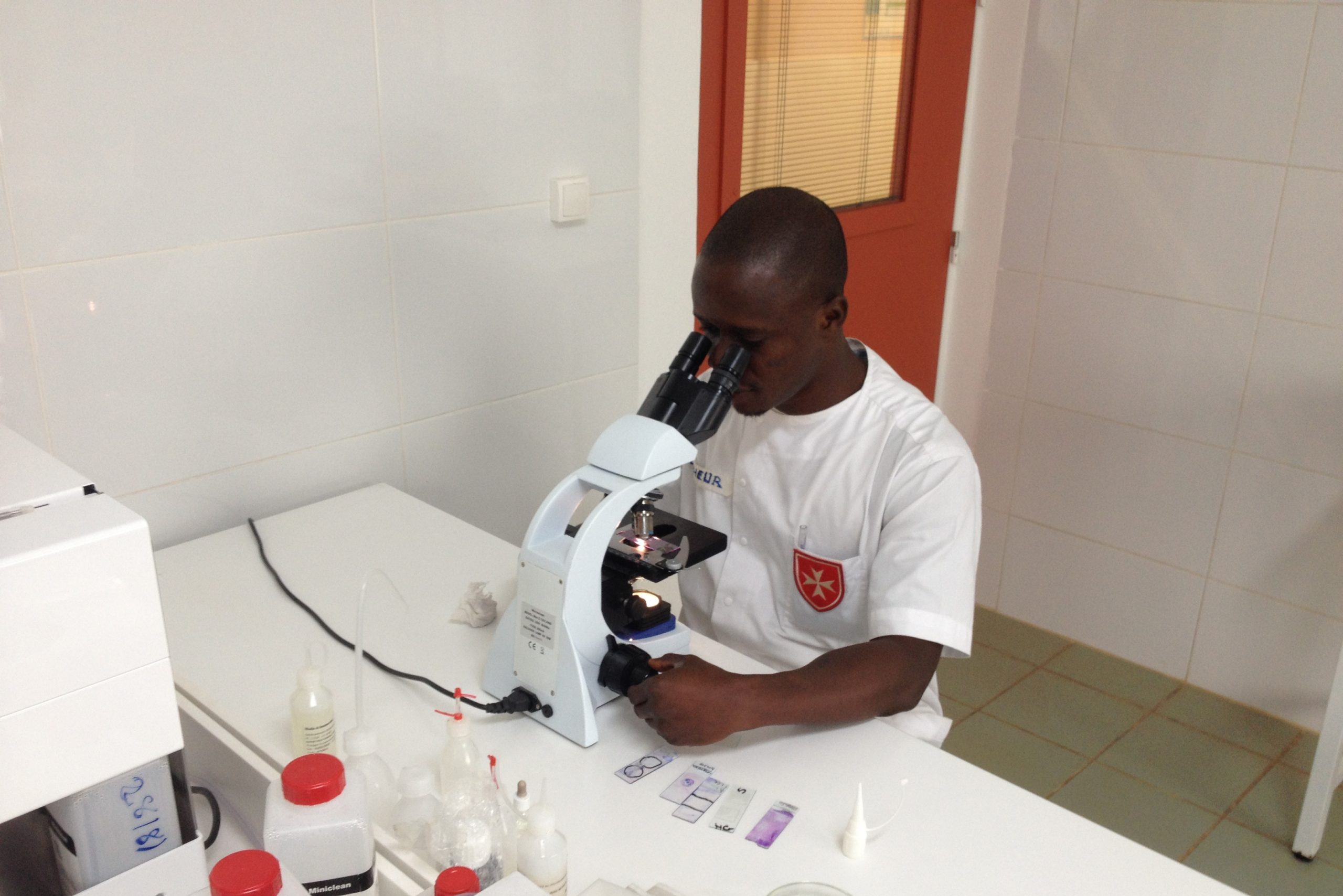
Medical Care for Disadvantaged Mothers and Children, Order of Malta France
The Order of Malta’s St Jean Baptiste hospital in Bodo, Ivory Coast provides vital healthcare to a remote area of 250,000 people. Operating in a district where there is only one doctor for every 20,000 and 50% of the population live in poverty, the hospital cares for over 30,000 people a year. There is a malaria programme to carefully monitor expectant mothers and their newborns who are at an increased risk of infection, leprosy treatment, and a specialist maternal and neonatal unit, which cares for over 8,000 women and children. This grant will support the annual running costs for the hospital, helping them to maintain the highest levels of care and treatment.
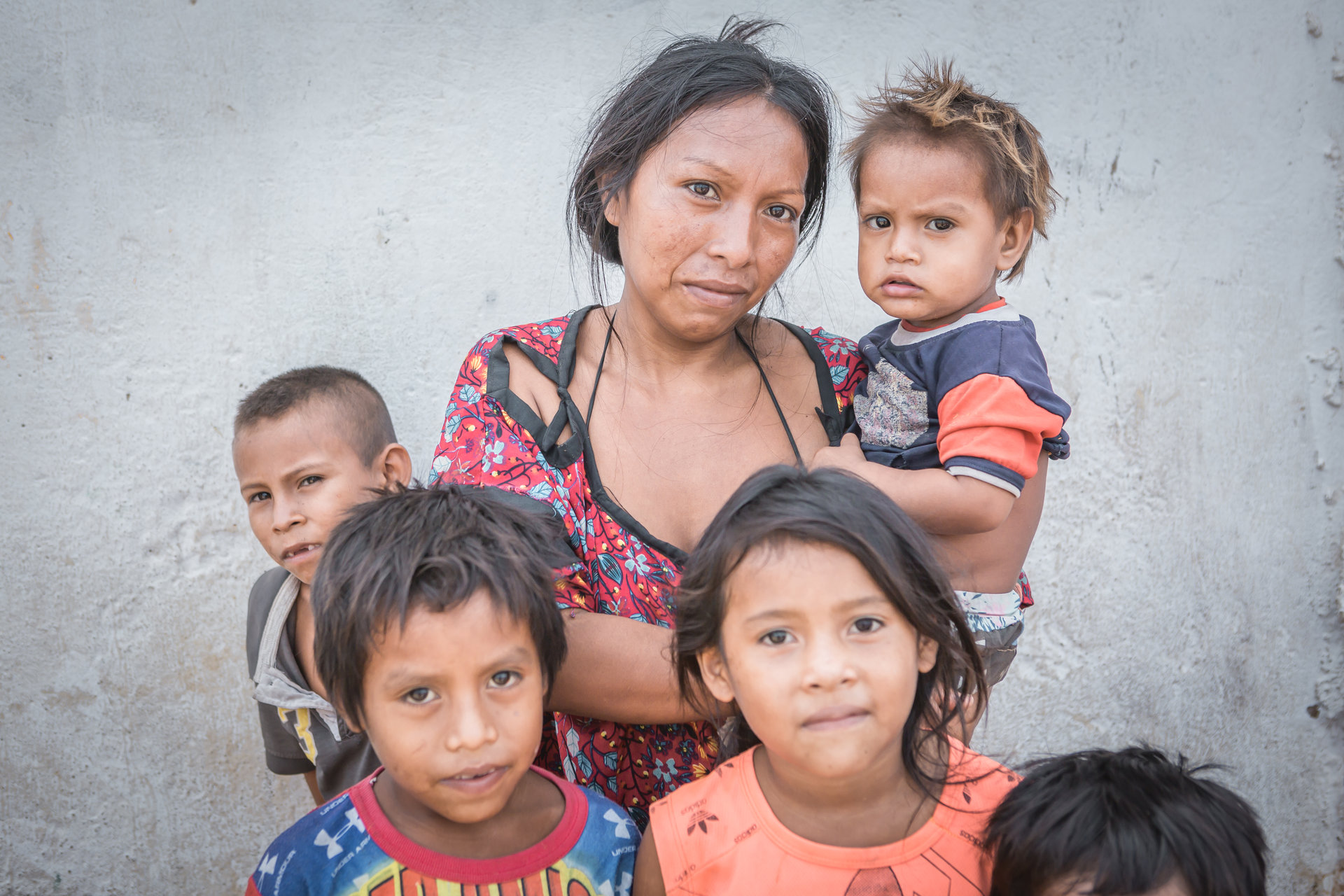
Shelter and Support for Refugees, Malteser International Americas
Colombia is now home to over 1.8 million refugees and migrants. In the northern border region of La Guajira, tens of thousands of people are now being hosted by local communities who are recovering from decades of internal displacement and armed conflict. The continuing influx of people is further exacerbating the poverty levels and pushing the already stretched local services to breaking point. A previous project has built 40 shelters for refugees and migrants, but need continues to rise. This grant will enable the project to build a further eight shelters to house 40 more highly vulnerable people, and integrate these families into host communities. Beneficiaries will also benefit from an ongoing livelihoods programme.
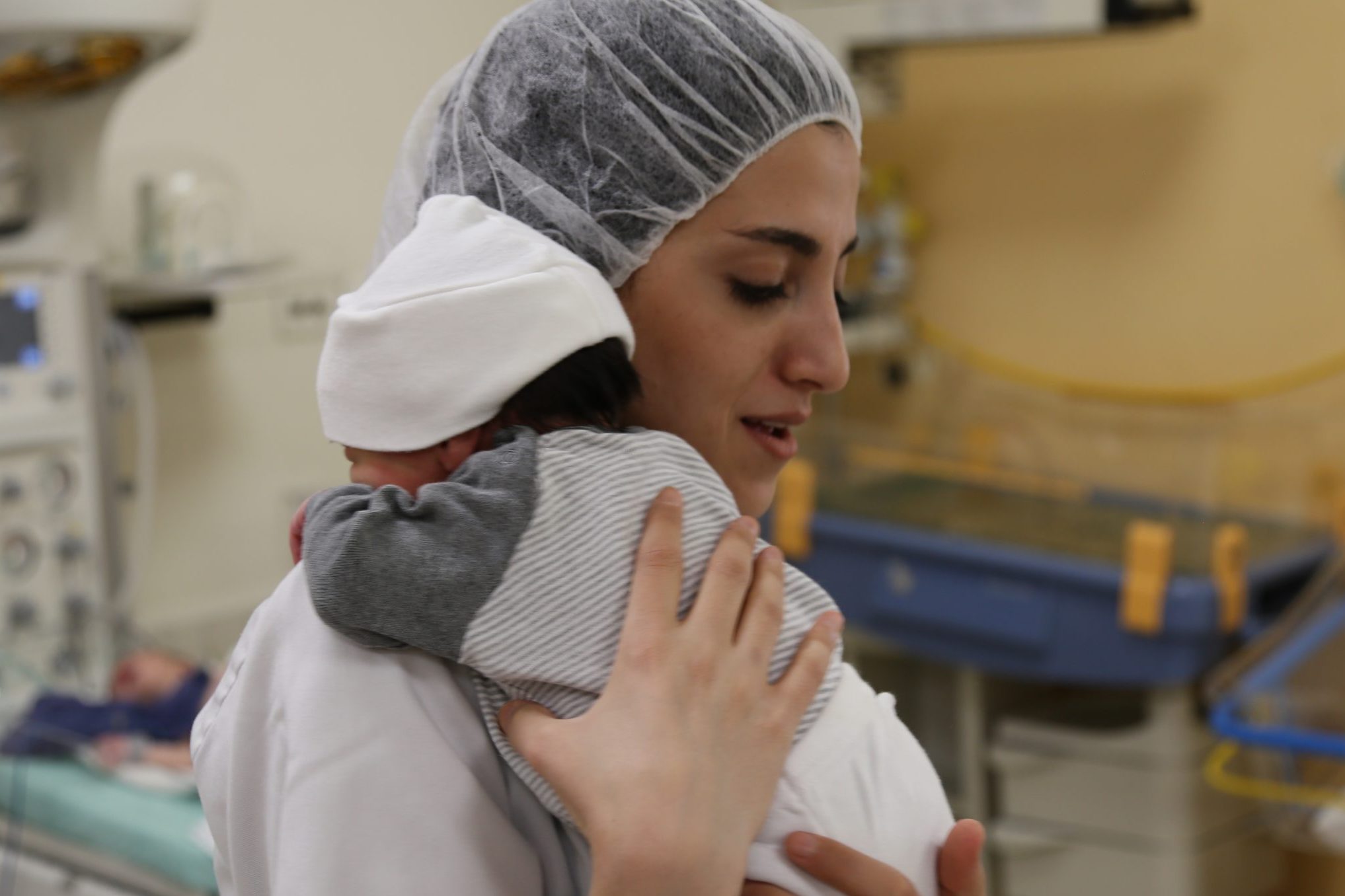
Caring for Mothers and Babies, Holy Family Hospital
Holy Family Hospital has the most specialised Neonatal Intensive Care Unit in the Bethlehem area. All care is subsidised to some degree and patients are helped with sliding scale fees, but this is not enough. In an area where 60% lived below the poverty line before the pandemic, the past year has had a terrible economic impact on the people of Bethlehem, who are almost solely reliant on tourism. Nearly 90% of the local population have not been paid for over a year, leaving many families unable to contribute anything towards the costs of their care. Many are struggling to afford food, with mothers feeding children first and going without themselves, increasing the likelihood of premature and underweight babies – HFH saw the smallest and most seriously unwell babies in its history in 2020. This funding will contribute to the hospital’s ‘Poor Case Fund’ that subsidises the high cost of NICU care for the poorest patients, enabling around 800 women and children a year to receive life-saving care free of charge and removing the financial and emotional burdens on their families.
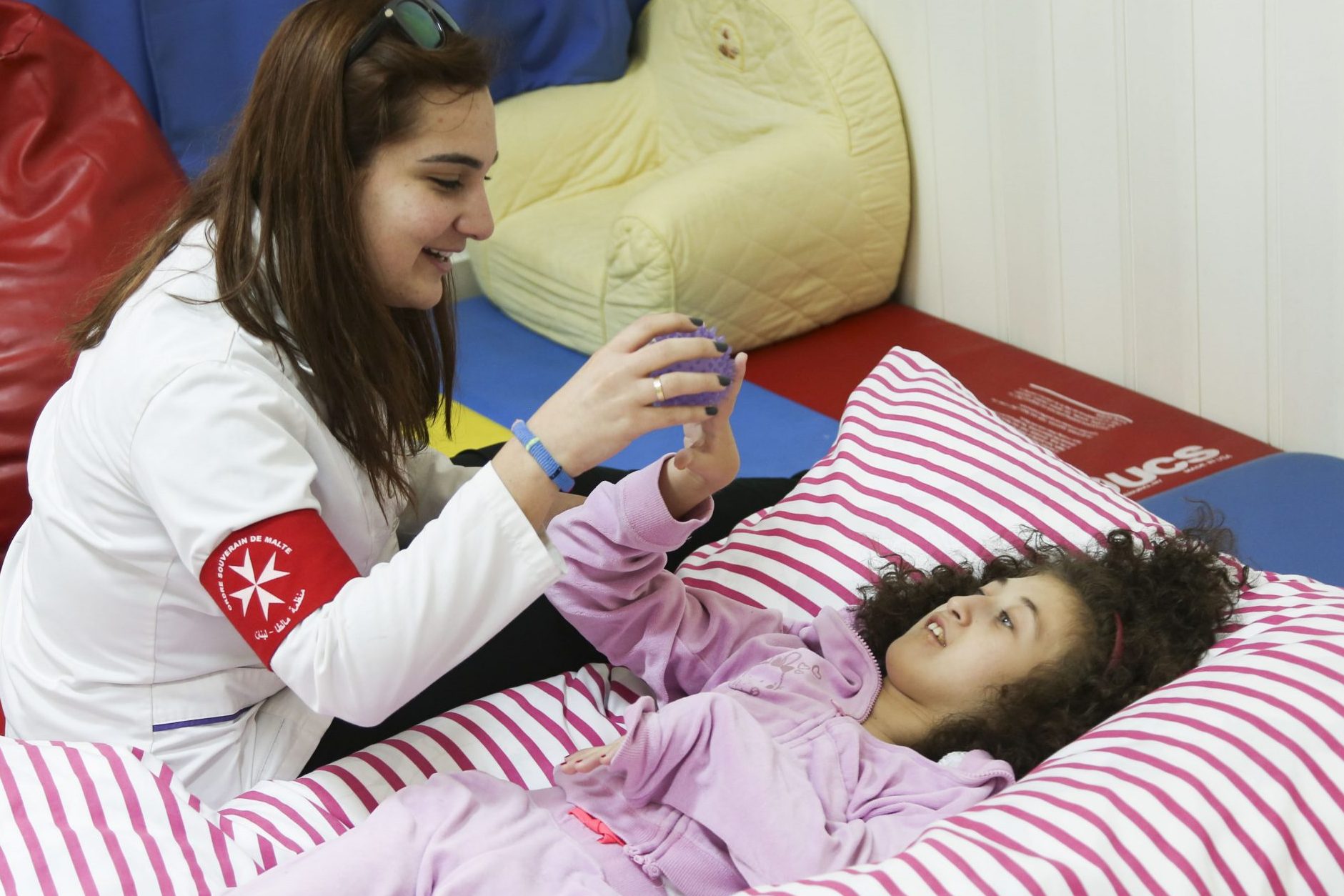
Socio-Medical Care for Disadvantaged Children, Lebanese Association
In 2019, the Association’s health centres saw a 38% increase in the number of children requiring mental health support alongside rehabilitation for speech and psychomotor difficulties. Many refugee children, who have experienced severe trauma, have psychosomatic, mental and physical symptoms requiring urgent therapeutic care. With support from two previous grants from the Fund, a specialist therapy service for children has been established across four of the Association’s health centres, enabling over 2,500 consultations a year. The effects of the pandemic restrictions, the trauma of the Beirut explosion and the anxiety absorbed from parents as the economy continues to freefall leaving a third of the country unemployed and nearly as many living below the poverty line, will only increase the need for this service. The grant will enable them to equip the remaining five healthcare centres to provide speech therapy and psychomotor consultations for children. Funds will also support the continuation of the successful telephone guidance service, which enables parents to access remote support, and support an outreach communications campaign across the nine centres.
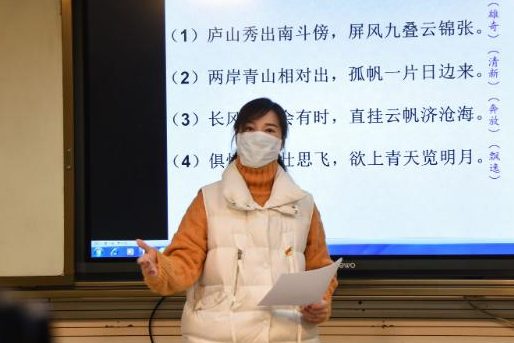
Online Learning for Disadvantaged Children (COVID-19), Hong Kong Association
Schools in Hong Kong remained closed for most of 2020 and only reopened in February this year. The move to online learning left many children from disadvantaged backgrounds unable to access education and now at risk of being left behind. As they get older, the lack of digital access and skills also puts them at a disadvantage when applying for jobs or university. The ‘Flying Young – Computer Club’ addresses this issue by providing laptops and online learning to disadvantaged children. So far, 44 laptops have been loaned to low-income families, and 60 families are benefiting from the project’s bi-weekly zoom classes to build digital skills. Order volunteers also offer homework support, English lessons and other life skills classes through the online club. Two grants from the Fund will enable the project to include a further 20 children in the programme, hire a professional tutor to supplement the volunteers’ work and create structured lesson plans and arrange field visits to broaden their horizons.
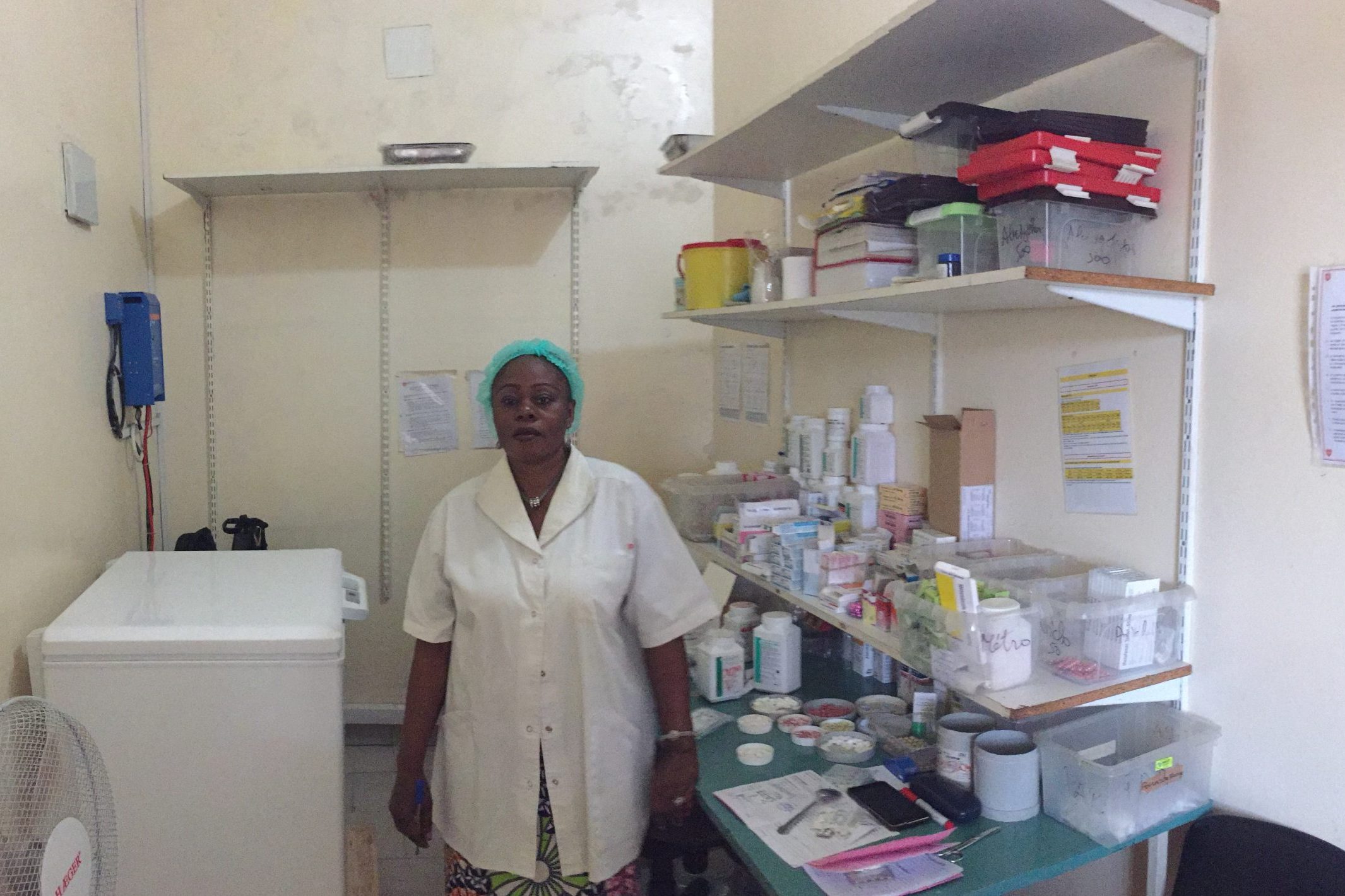
Improved Testing Facilities for Better Patient Care, Order of Malta France
The Order’s Saint-Kisito health centre in Brazzaville has been offering affordable healthcare to the most vulnerable people of the Makélékélé district since 2013. The primary healthcare service is supplemented by an onsite pharmacy and a medical laboratory, which undertakes over 12,000 tests and analyses a year. The laboratory has become outdated and is no longer able to ensure appropriate hygiene standards, forcing the centre to outsource its function, causing delays in the processing of patient tests and increasing costs. This grant will renovate the laboratory, returning this vital onsite facility, and enabling the technician to undertake an increased number of tests, analysis and vaccinations in appropriate conditions with state-of-the-art equipment, improving the quality of patient care.
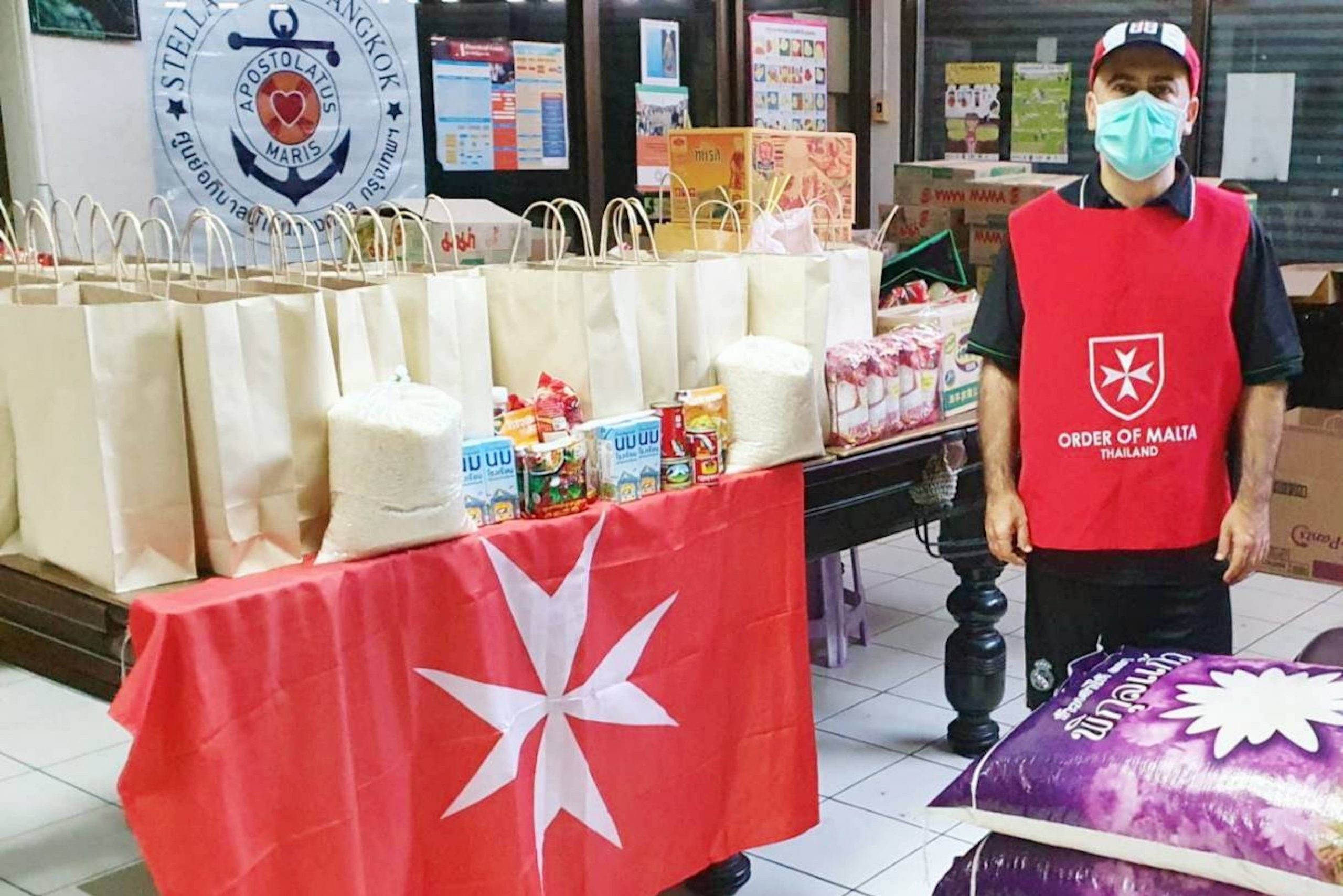
Outreach for the Elderly, Order of Malta Thailand
The Order of Malta has been active in Thailand for around 10 years with a small but growing community of members and volunteers. The Order distributes food packages, wheelchairs and blankets to around 3,000 people a year, including families living on the streets in Bangkok, remote indigenous communities living in poverty, and those affected by recent natural disasters. This grant will support their “Care for the Elderly” project which sees young volunteers organising monthly visits to abandoned and destitute elderly people, providing basic medical checks, exercise activities, and companionship. Beneficiaries will also receive food and hygiene supplies, as well as blankets and wheelchairs.
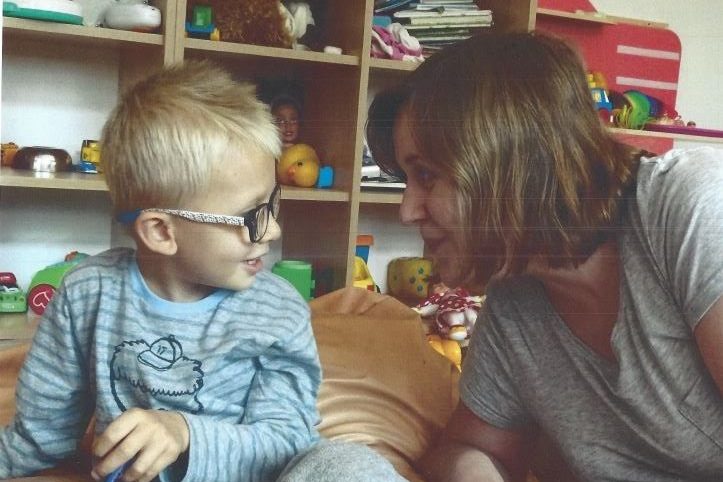
Home Therapy for Disabled Children, Polish Association
In the Polish health system, children born with disabilities or severe health conditions must wait until their parents have received the necessary documentation before they are eligible to receive state-funded care. This can sometimes take months, preventing those who cannot afford private healthcare from receiving immediate vital therapy, and causing great distress to families. This grant will enable the Maltese Health Centre in Krakow to expand its care to include at-home therapy for 40 of these children and holistic support for their families. Children will receive immediate care, increasing their chances of responding to treatment, while they await the documentation necessary for inclusion in the Centre’s regular state-funded programmes.
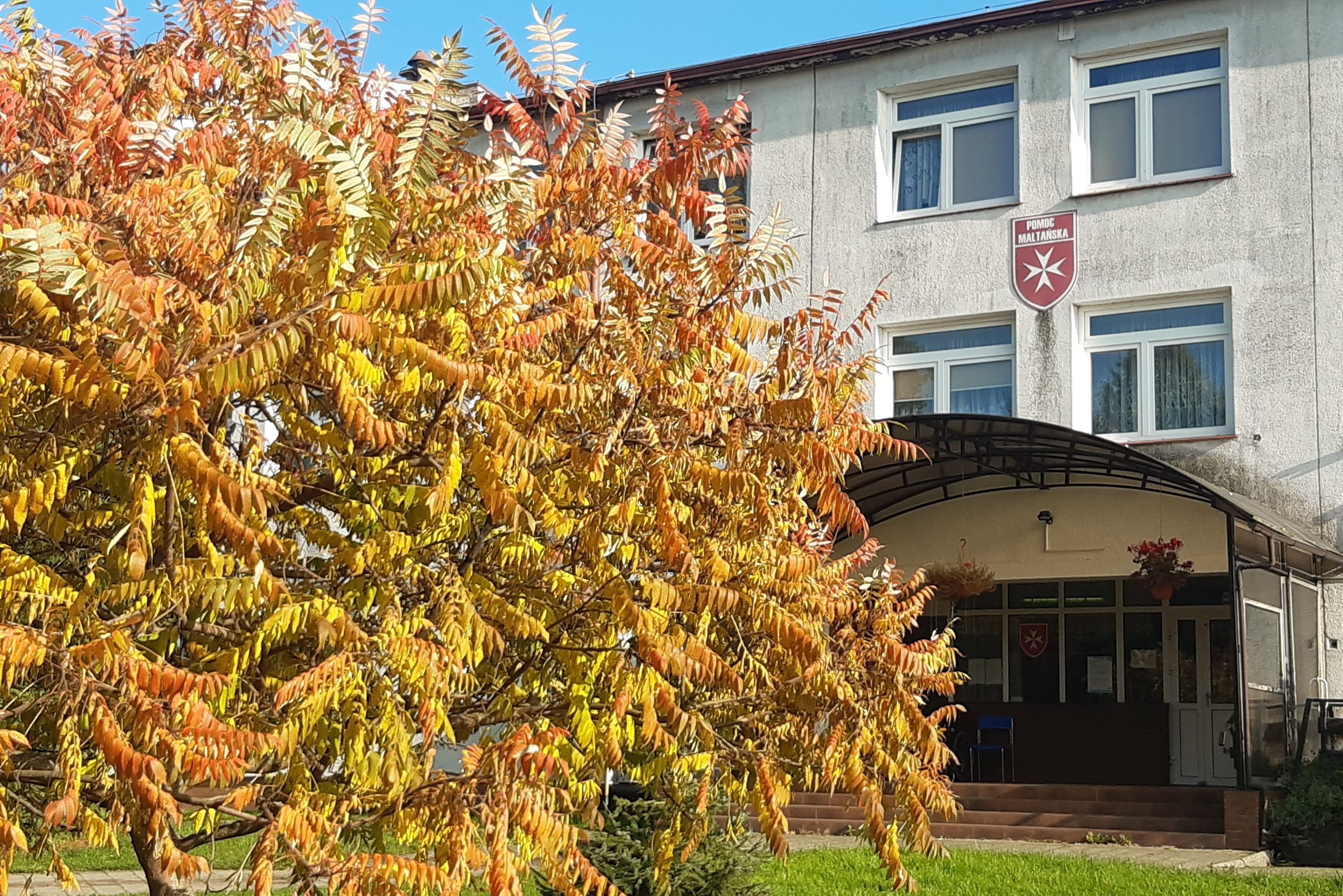
Building Confidence and Independence for the Mentally Ill, Polish Association
The Social Assistance House of Michael the Archangel at Szyldak has 100 residents with chronic mental illnesses such as schizophrenia and bipolar disorder. Some residents have been in institutional care for nearly 30 years, suffering irreversible changes to their mental condition. However, public funding is barely sufficient to cover the routine medical and running costs of the facility. This grant will support programme costs to enable the centre to create a pathway from institutional care to independent living for 25 residents, helping them to begin to reintegrate into society. Funds will enable staff training in new therapeutic approaches and increase the ability of the centre to tailor interventions to each resident, while reducing their reliance on medication.
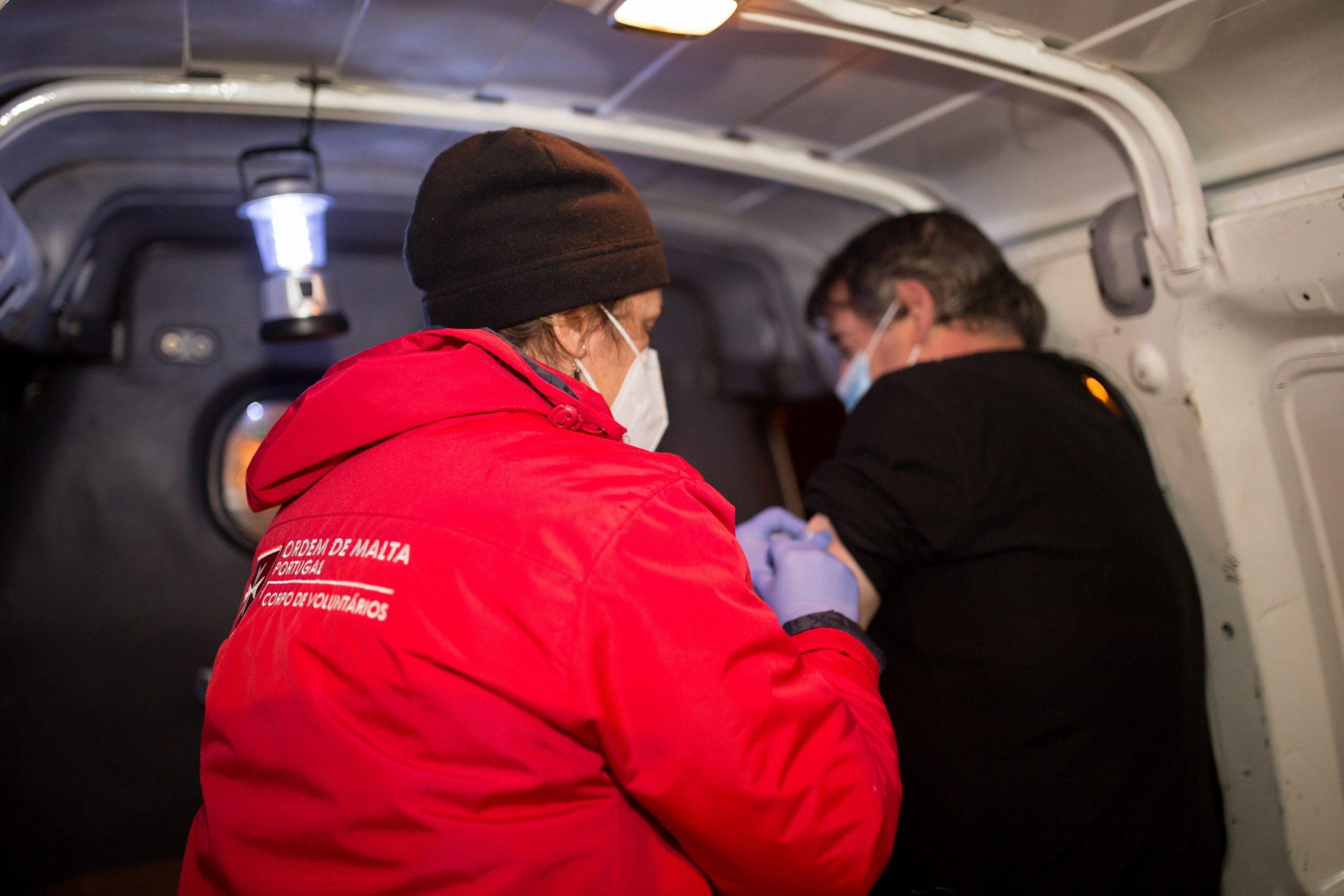
Mobile Medical Access for the Disadvantaged, Portuguese Association
Over 7,000 children in Portugal live in state social care institutions due to family breakdown, parental illness, neglect or abandonment. While public funding covers their minimum expenses, this does not cover preventative mental and dental monitoring and treatment, which often leads to serious infections or permanent damage. The grant will support the purchase and customisation of a mobile medical unit, enabling volunteer medics to provide health and dental care to 140 children living in state institutions in Lisbon and Porto. They will also offer these services to 100 children from disadvantaged families in four remote villages in Northern Portugal where access to healthcare is still extremely difficult. The unit will also provide care to the isolated elderly and support the Order’s outreach work with the homeless.
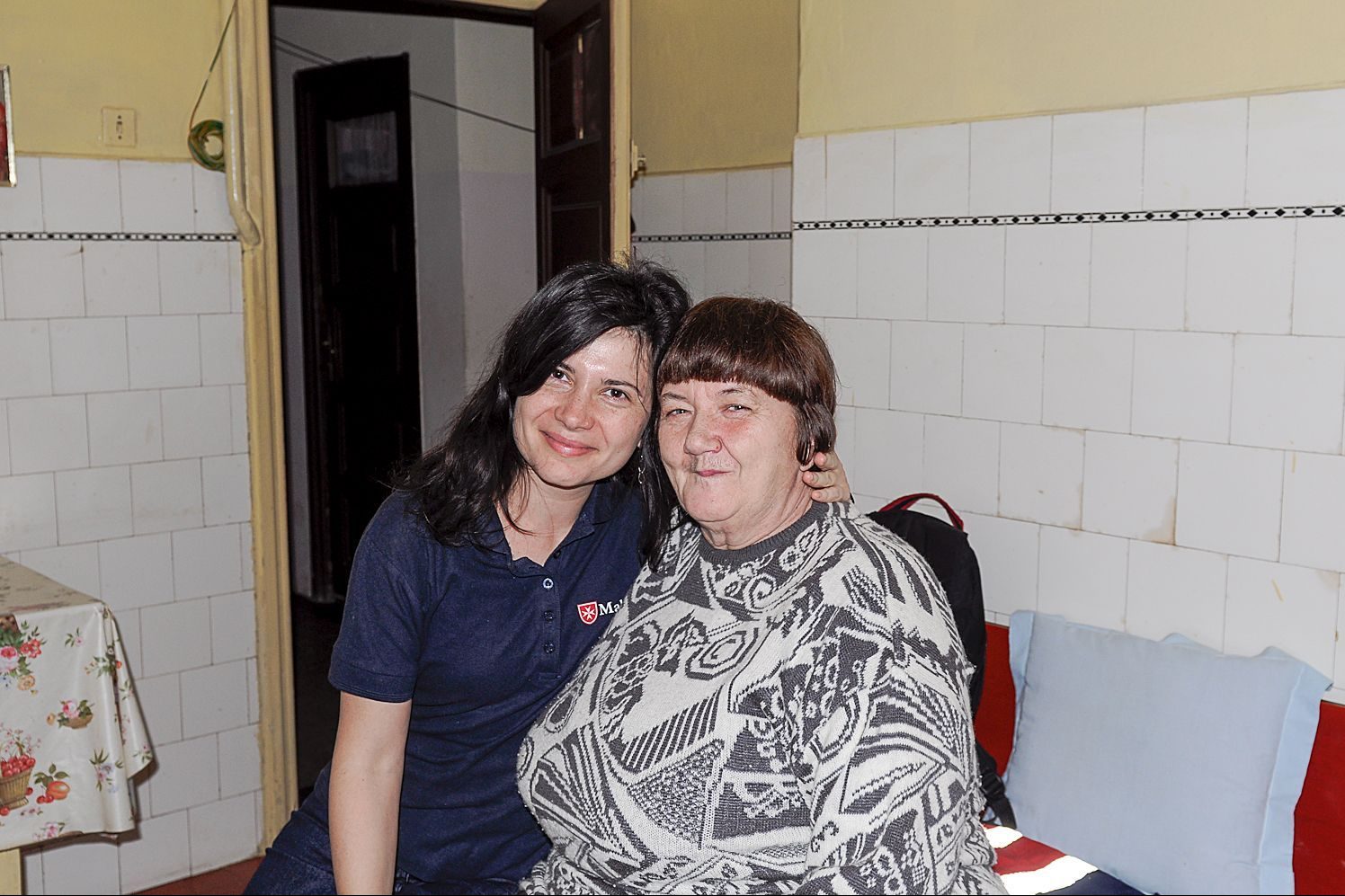
Support Line for the Elderly and Isolated, Romanian Relief Service
Elderly people, especially those who live alone, in poverty or struggling with poor health, have become even more isolated as a result of the pandemic. Many are afraid to leave their homes for fear of contagion, and loneliness is leading to a further deterioration in their mental and physical health. Inspired by their crisis intervention approach during the last year, this grant will enable the Order to pilot a permanent help line service across four regions. The service will enable the elderly to request outreach services such as food support or collection of prescriptions, as well as accessing counselling and conversation to combat isolation. It is hoped this way of working will enable volunteers to provide a faster and more targeted response to those in urgent need. It is estimated 40 volunteers will take around 700 calls a month.
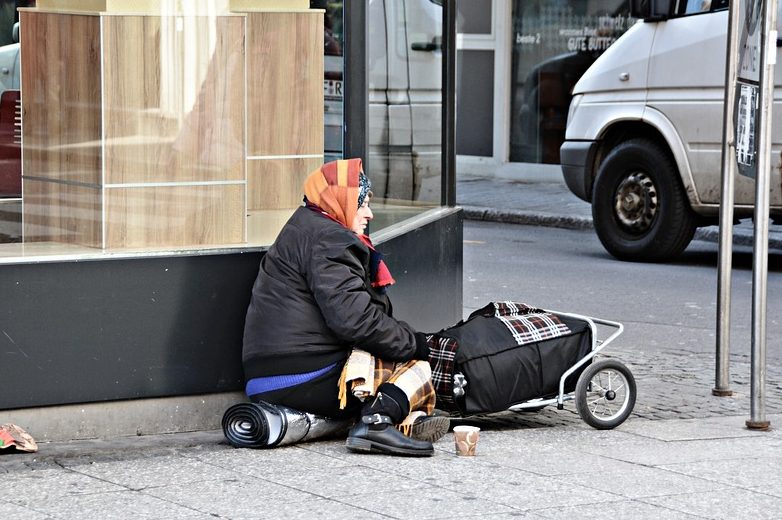
Day Care Centre for the Homeless, Italian Association
It is estimated around 18,000 people live on the streets of Rome, with no access to hygiene and sanitation; a plight that has been thrown into even sharper relief as a result of the pandemic. The Order began renovating a building in March 2020 which, when completed in May 2021, will provide a new holistic day centre for the homeless. With both permanent staff and volunteers from several different Order entities, the centre will provide basic healthcare, social support, showers, laundry, as well as spaces for counselling, workshops and skills training. There will also be a space for socialising and refreshments. The new centre will welcome several thousand people a year, providing them with high-quality care and support services to facilitate their transition out of homelessness. This grant will cover the costs of purchasing kitchen equipment such as a dishwasher, as well as a computer for beneficiary use, and the necessary hygiene supplies for the first year.

Mental Health Support for Medics and Civilians (COVID-19), Embassy to San Marino
As of January 2021, San Marino had the highest rate of confirmed deaths per capita from COVID-19 in the world. The small population of 35,000 has, like many others, suffered prolonged periods of isolation, and an unprecedented risk to those in the medical profession. The scars left by the pandemic are as much psychological as physical, but mental health remains highly stigmatised and few people are willing or able to seek the professional help they need. This grant will provide the start-up costs to establish a psychological support line for civilians and medics suffering from mental health issues. Funds will cover the cost of equipment for a mobile clinic offering basic health screening, providing a safe space to broach mental health issues, and put them in touch with the helpline and any other relevant support services.
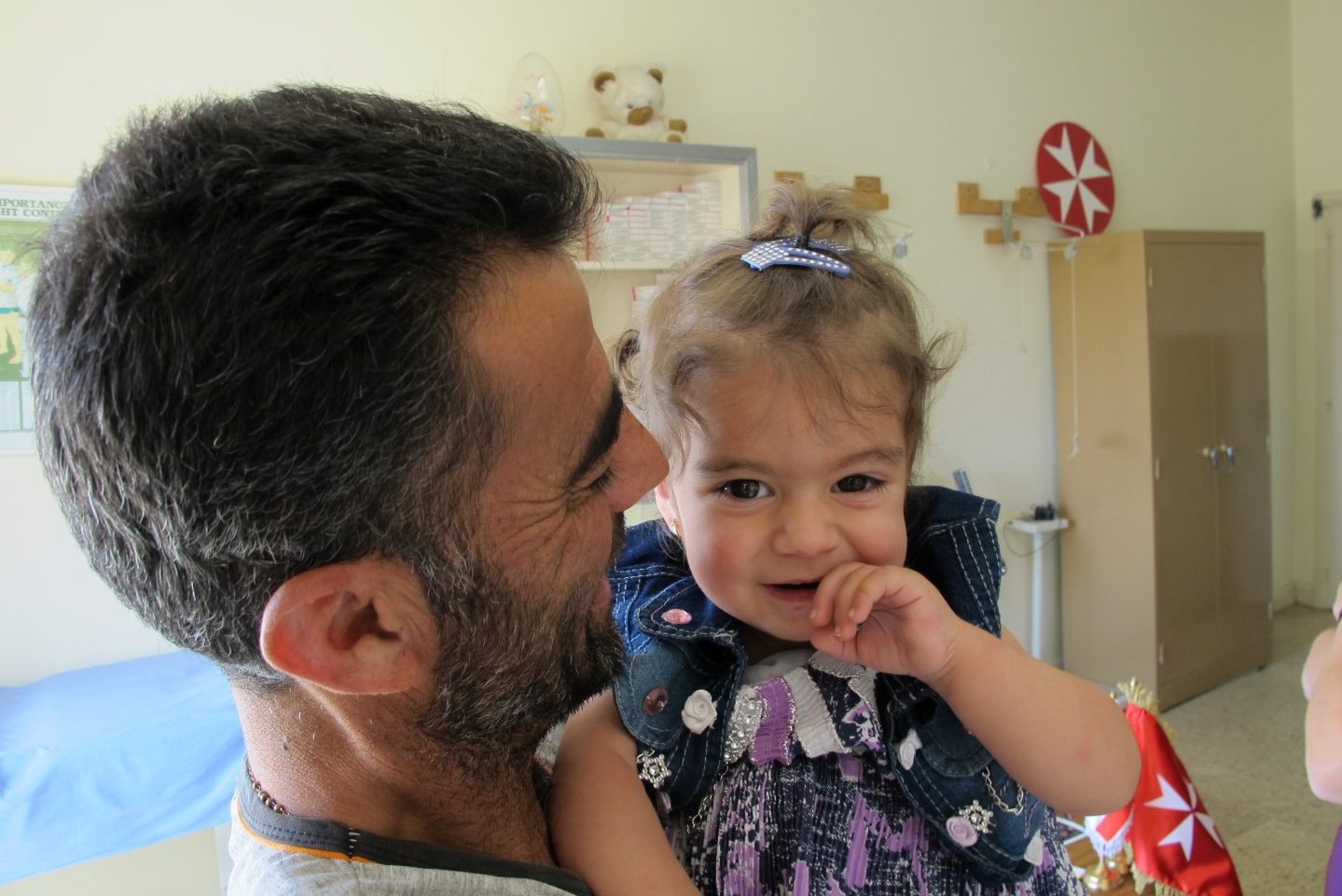
Health and Hygiene Outreach for Disadvantaged Children, Lebanese Association
The multiple crises facing Lebanon are seriously impacting children’s basic physical and mental wellbeing. There is a desperate lack of essential items such as nappies and milk available on the Lebanese market, and prices are skyrocketing. Food prices have increased by 300% in the last year putting many thousands of children at heightened risk of malnutrition. This grant will support a new project providing customised health and hygiene kits to 2,800 babies and toddlers from the most vulnerable families across nine health centres. The project will also provide accompanying education on child health and wellbeing as well as information about the child support services offered at the centres. The project aims not only to ensure thousands of vulnerable children are receiving the necessary care for strong early year’s development, but also to strengthen the relationship between their socio-medical centres and the families in the communities where they work.
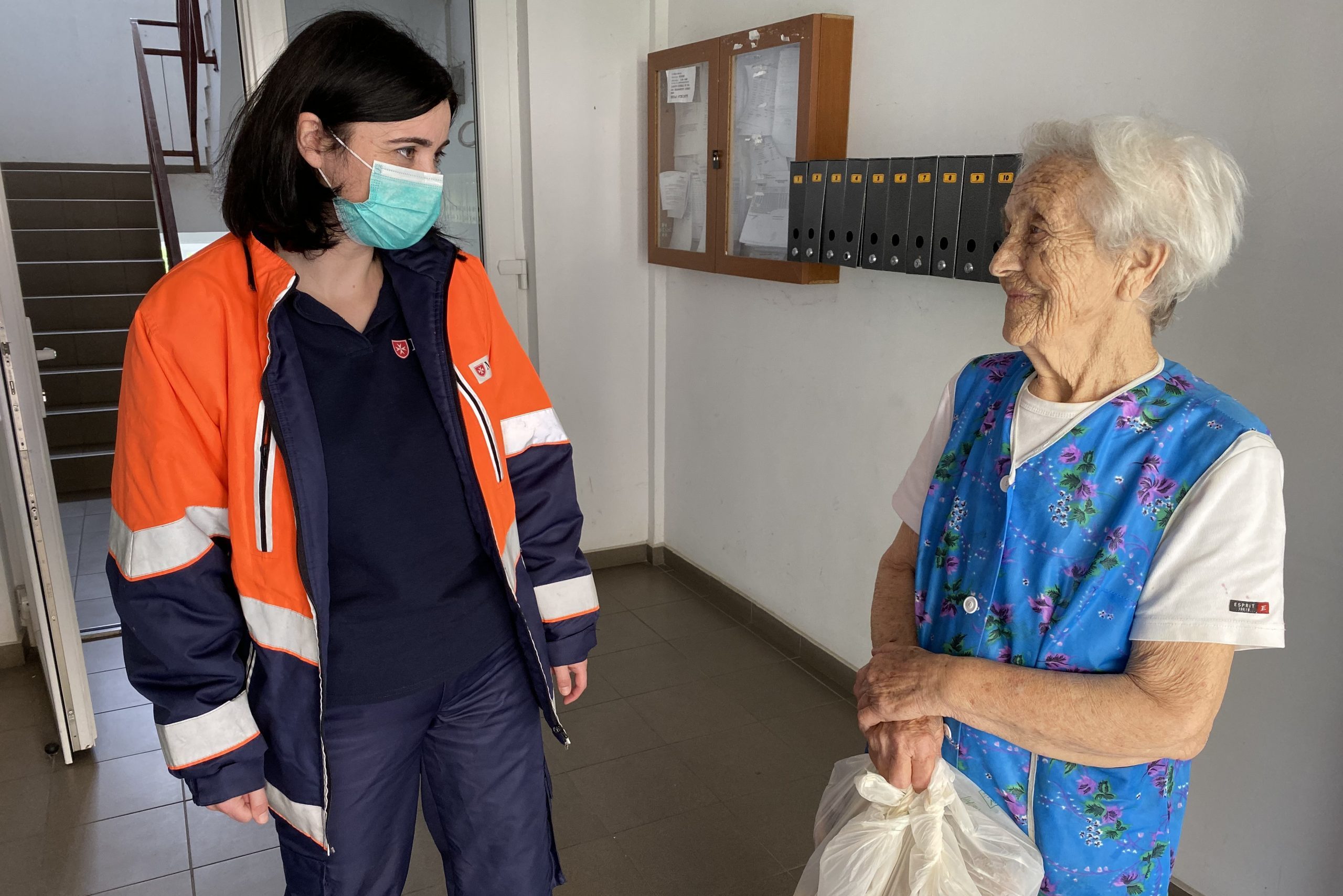
Care for the Vulnerable Elderly, Romanian Relief Service
During the pandemic, the Order in Romania became aware of increasing numbers of elderly people living alone and struggling to care for themselves. In the town of Targu Mures, volunteers were notified of 20 vulnerable elderly living in the same block of flats with no family or social support network. This grant will enable the expansion of the local ‘Meals on Wheels’ programme to include this community, who are unable to prepare meals due to poor health or disability. Funds will also provide the start-up costs for the creation of a pilot project to install a 24-hour alarm system for the residents, who will each be given a portable alarm button, enabling volunteers to respond immediately to emergencies or severe distress. If successful, it is hoped this system can be used in communities across the country to fill a need for more holistic social support alongside the state emergency services.
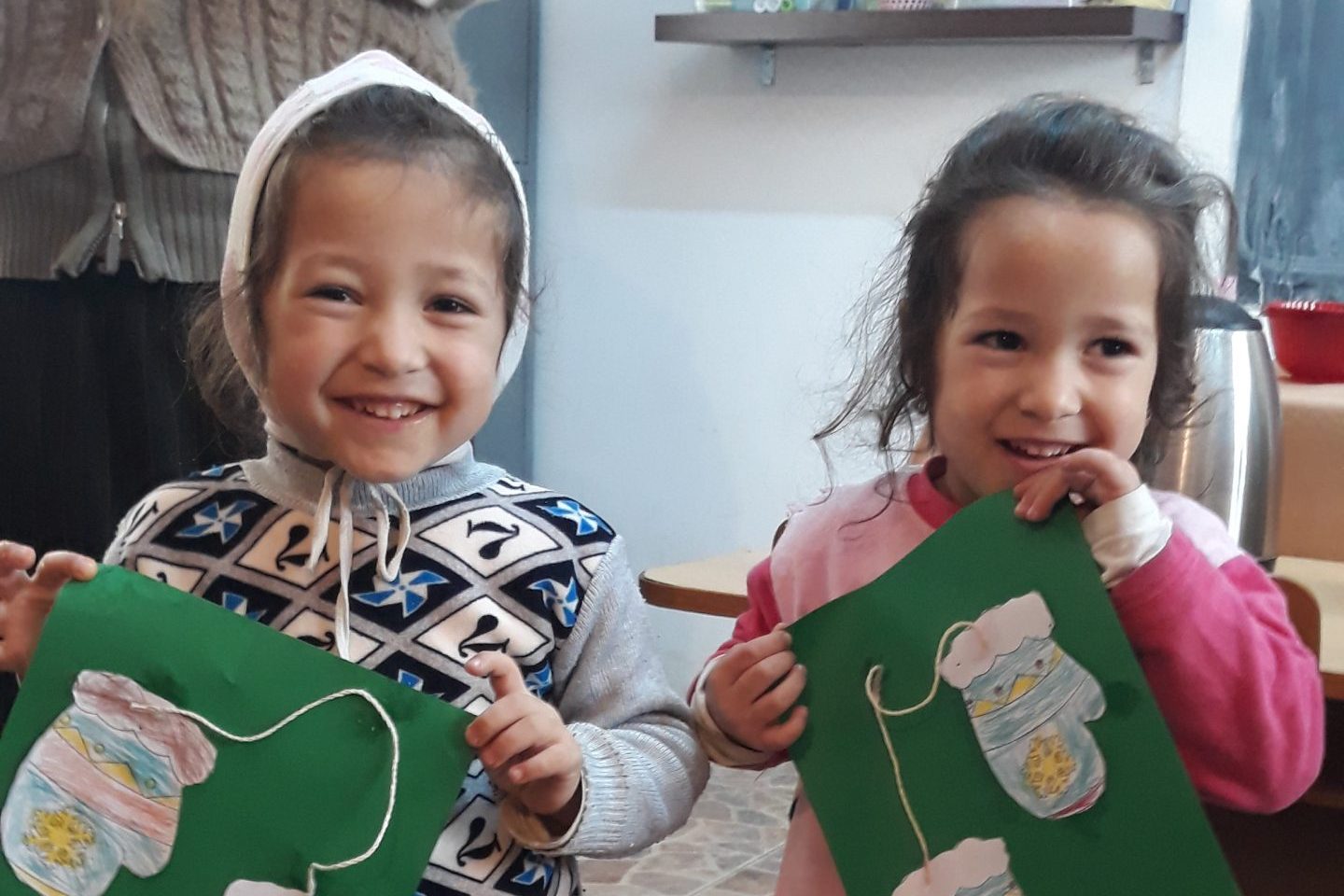
Centre for the Displaced Roma Community, Romanian Relief Service & Embassy to the Roma People
In January 2021 a fire ripped through the makeshift dwellings of the segregated and overcrowded Roma community of Sumuleu Ciuc, leaving 256 people including 162 children homeless and destitute. The Order are leading the response supporting these families, after requests from the local community. Funds will support the refurbishment of a community building and its first year running costs. The new centre will help the community build a better future by providing integrated and holistic support, including life management and parenting skills, literacy classes, employment support, and personal hygiene education. There will be afterschool clubs for children as well as extra-curricular activities designed to improve socio-emotional development and discourage early school dropout.
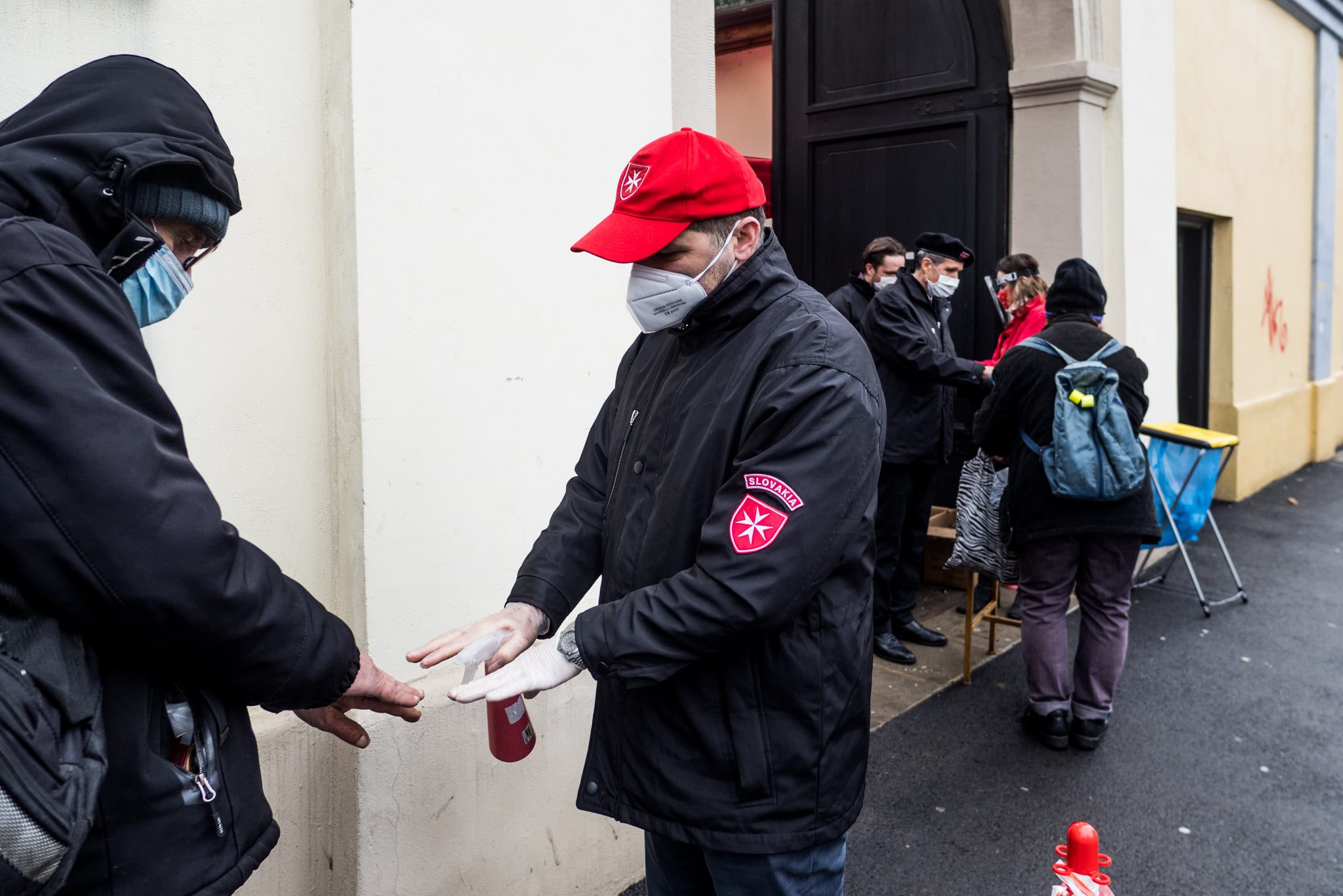
Shelter and Meals for the Homeless, Slovakian Relief Service
Since 2017, volunteers have been distributing food packages and warm clothes to those living on the streets of Bratislava. The project initially only took place during the winter months, but has become year-round as a result of the pandemic and the escalating need they have witnessed. They are currently serving around 180 people with a weekly distribution of food packages, bottled water, warm clothes and hygiene supplies. Legal volunteers also provide a free advice service on how to clear historic debts – one of the major obstacles preventing many from finding permanent shelter or employment. The project has also proved to be a successful recruitment tool for additional volunteers. This grant will support project costs for 2021 including start-up costs for an expansion into two other cities, enabling them to reach a further 60 people a week.
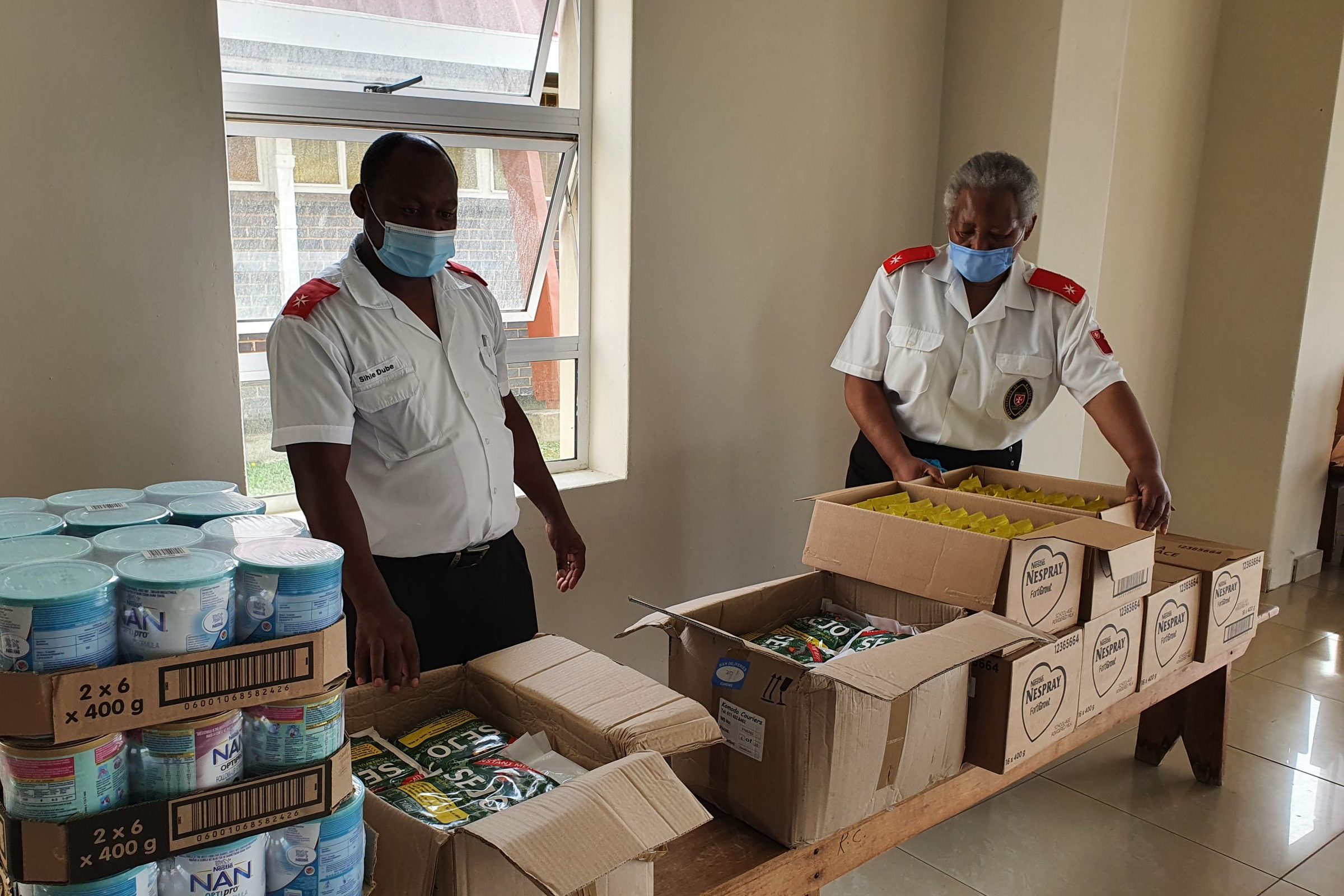
Malnutrition Clinic for Children and HIV Patients, South African Relief Service
Nearly a third of children in the state of KwaZulu-Natal have stunted development due to malnutrition and yet the majority of feeding schemes target primary and secondary schools. In the remote rural region of Mandeni, where extreme poverty and endemic unemployment leave many families unable to feed themselves, this programme is helping to ensure babies and toddlers receive the nutrition they need to support healthy early year’s development. This grant will support costs for the malnutrition programme, providing monthly nutritional supplements to 40 mothers and babies at an outreach clinic as well as to 90 pre-school children aged 2-6 who attend the crèche. Funds will also enable the provision of fortified porridge for 40 patients in the hospice and 50 patients receiving HIV treatment, helping to boost their immunity levels.
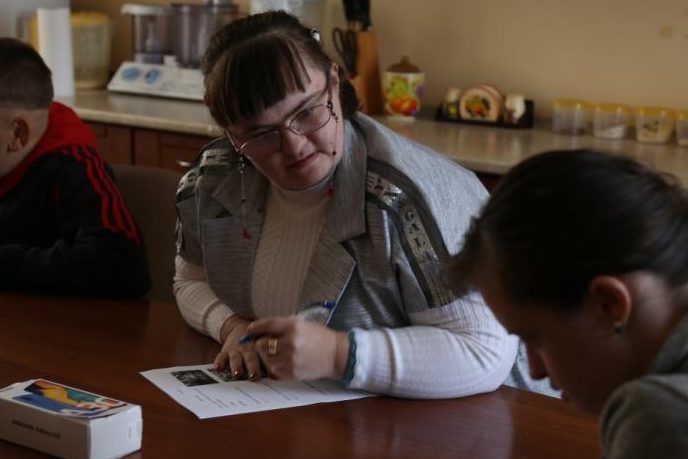
Craft Workshop for Disabled People, Ukrainian Relief Service
There are currently no state programmes in the Ukraine to care for people with mental disabilities once they have left school. Without continuing education, all the progress these young people have made will be lost in a matter of months. This project was established in Lviv in 2020 with support from the Fund and is now supporting 15 young people with mental disabilities to develop craft skills that improve their motor skills, self-confidence and communication, as well as offering employment potential. The programme also gives respite to the parents, who are often forced to leave work to take care of their children once they return home from state boarding schools at 18. This grant will enable the extension of the current workshop and the creation of a second workshop for 20 young people in the Eastern city of Mariupol, near the front line, where support for those with disabilities is almost non-existent.

Education and Integration of Roma Children, Ukrainian Relief Service & Embassy to the Rome People
There are around 7,000 Roma people living in a segregated camp in appalling conditions outside the city of Beregovo. Very few of the children attend school and those who do mostly drop out and a lack of education means very limited employment opportunities. The cycle is perpetuated by the many girls who become pregnant very young, lacking the skills to teach their own children basic life skills. This grant will support the running costs of a centre to tackle these issues as it provides around 40 children with after-school activities, health and hygiene lessons, and promotes the importance of education. Funds will also ensure a daily meal for the children, which is sometimes the only food they will have that day, and enable the addition of counselling and mental health support to build the children’s self-esteem.
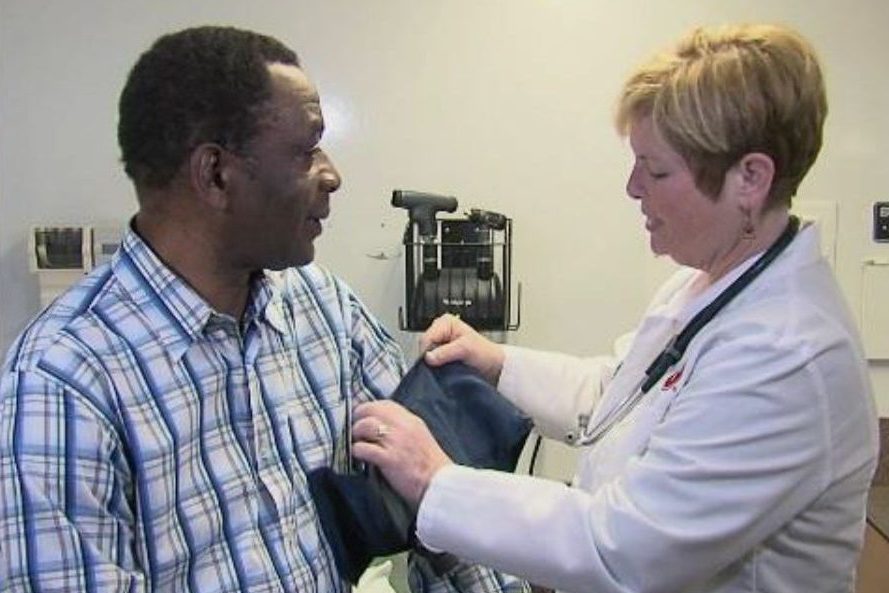
Medical Care for the Uninsured, US Federal Association
Founded in 2006, Malta House is the only free clinic for uninsured adults in the Greater Hartford region of Connecticut, providing free primary healthcare for thousands who would otherwise turn to emergency rooms or get no care at all. In an area where 30% of the population live in poverty, their 50 medical volunteers provide diagnoses, tests, prescriptions, and guidance on how to manage chronic conditions, bringing care to forgotten communities with their mobile clinic. Many are refugees, with patients representing 59 countries and speaking 36 languages. In 2020, they provided 6,089 primary care visits, caring for 1,625 people, despite the challenges of the pandemic. Following learning from the pandemic period, they will also be adding telemedicine to their offering, helping meet the increasing need for their service as the economic impact of the pandemic continues to be felt. This grant will be used to pay for the cost of free basic eye tests as well as the patients travel costs to attend the partner optometrist clinic. This service is particularly vital for the 600 plus patients who are diabetic and at risk of sight deterioration.
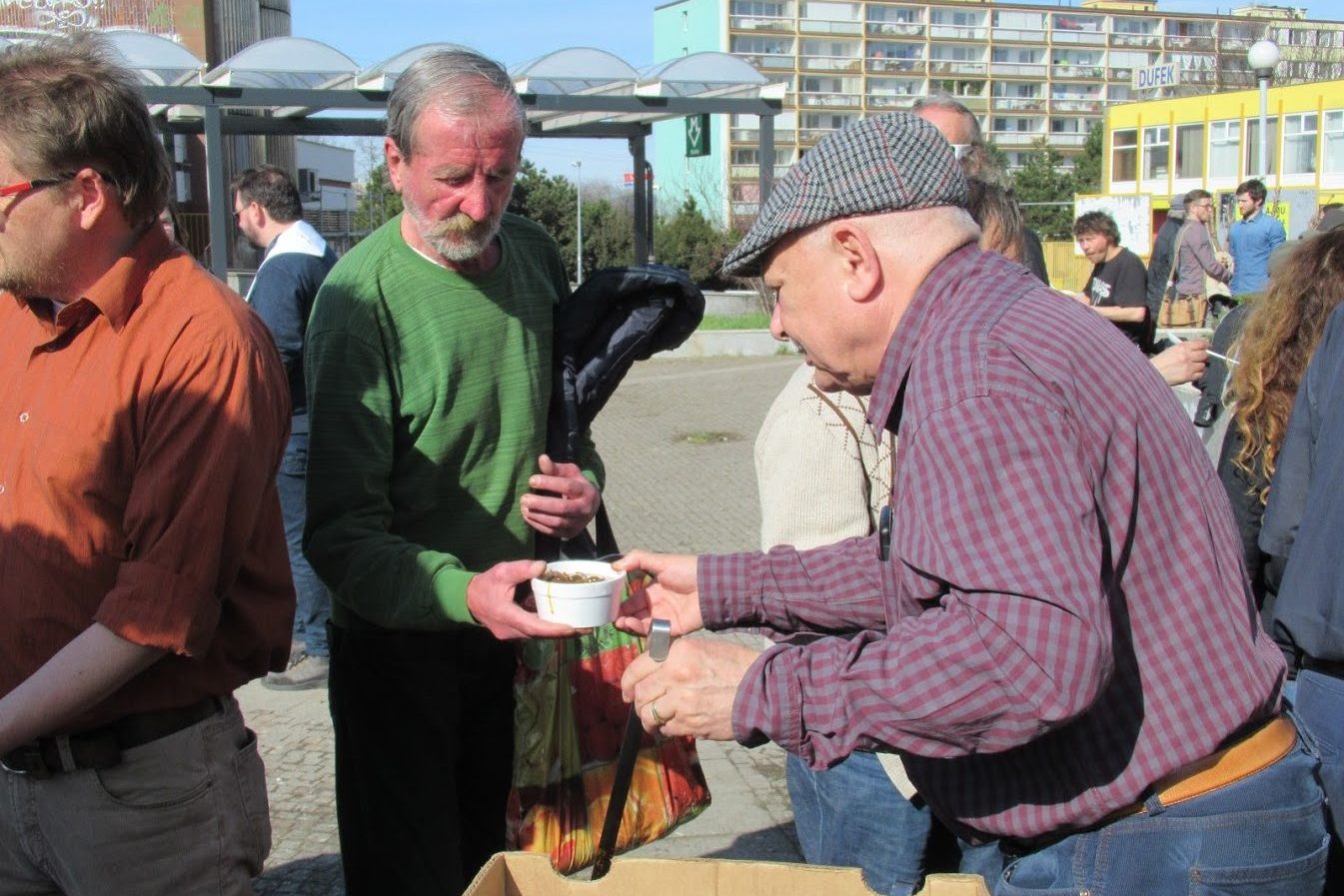
Help for Homeless People, Czech Relief Service
Around 4,500 people in Prague are homeless and desperately need help to find shelter. This project offers help to around 90 homeless people and those at risk of social exclusion in Prague every year, enabling them to positively address their situation and integrate back into society. Beneficiaries are supported to obtain legal documents, to access social benefits, to find accommodation, and offered financial literacy to help solve debt issues. Social workers then provide longer-term support to those who have been allocated social housing, supporting them with household and financial management, helping to rebuild their independence while also working to reduce the sense of isolation often felt by those moving back into fixed accommodation. This grant will enable the purchase of a car to improve the ability of social workers to respond quickly to call outs, and streamline food bank and other deliveries.

